#it’s also probably a bit of a deconstruction of the magical girl genre
Explore tagged Tumblr posts
Text



“Moon Knight-chan,” Phases of the Moon Knight (Vol. 1/2024), #3.
Writer and Artist: Yuji Kaku; Letterer: Cory Petit
#Marvel#Marvel comics#Phases of the Moon Knight#Moon Knight comics#latest release#Moon Knight#Nakaba#Mika#I don’t care what anyone says I’m going to defend their status as Moon Knight until my dying breath#no comic dude bro will be able to get me to back down I WILL pull up that second page and say «yes this is Moon Knight»#they’re also just….something here juxtaposing a rather innocent and genuine desire to help#— to protect travelers of the night from any sort of harm that might befall them — with Kaku’s typical violent content#as well as complicated situations that challenge black and white thinking#like Nakaba’s intentions here are very sweet but also oh my gosh that was a potential «client’s» head#it’s also probably a bit of a deconstruction of the magical girl genre#like sure they’re trying to help but that’s a lot of power in anyone’s hands let alone when trying to be an arbiter of justice
5 notes
·
View notes
Text
Just a list of things from growing up in the 90s about media. Things that u don't really see anymore in cartoons or TV. Feel free to add more
Quicksand: growing up every adventure show I watched had some form of quicksand show up and be the deadliest thing ever. Doesn't really appear anymore, at least not in the capacity that it once did
Atlantis and ancient egypt: both of these where focused a lot on in 90s early 2000s media. Every cartoon seemed to have an episode on one if these, or whole series about them. Ex mummies alive, Stargate, gargoyles, Aladdin, prince of egypt, the mummy, real adventures of Johnny quest
Reading and recycling is cool: I completely understand why this fell out of favor, but 90s shows had at least one ep focusing on either or both of these lessons. Ill also admit that they got me because i try to recycle and live to read. Ex wishbone, gargoyles, captain planet, magic tree house
King Arthur stuff: not as much as ancient egypt, but I remember there was tons of king Arthur stuff growing up either about it or having some hints to it. Ex kid in king Arthur's court, gargoyles, Babylon 5, Kids of the Round Court, Magic tree house
Animal stories, animals as people: look I'm not dumb, I know there is still a lot of furry stuff and the anthropomorphic animal stories of the 90s woke a lot of young furries, but it's more of an adult scene today than the kids stuff in the 90's or so. Probably because the kids that grew up with the stuff grew up and bingo bongo. There's still stuff for kids, but it's lessened quite a bit compared to the 90s where there were a lot of shows featuring animal protagonists, either as animals or anthropomorphized: ex Rats of Nimh, Redwall, Bucky o'hare, Disney's Robin Hood, the lion king, Looney Tunes (more Tiny Tunes given the time, but also Space Jam), Alvin and the chipmunks
Disney series based on their animated movies: Obviously I know why this isn't done as much, it's harder to make money off of it compared to the 90's. But they still do this, with Rapunzel and Big Hero 6, it's just not done as much. Compare to the 90's early 2000's where there was Aladdin, Hercules, Timon and Pumba, the little Mermaid. And there were even cross overs between them sometimes.
Martial Arts movies/tv shows: This I know I'm a bit dated on, but there were a lot of martial arts movies growing up, I know most were probably earlier than the 90's but martial arts was just big when I was a kid. I did martial arts for years, a lot of kids did karate even if they stopped after a few sessions, studios popped up everywhere and then closed a few years later. And this was before UFC became big
Mecha, Magical Girl, Super Sentai animes and other media: Again, this isn't a dead genre, especially the later two, but the latter two also tend to be deconstructions or even spoofs of the magical girl and Super Sentai Genre. But in the 90's there were tons of Mecha animes, over half a dozen attempts for America to capitalize on super Sentai/Power Rangers fame. It was easy to capitalize on these genre's of shows because you tended to need several main characters to fill out your roster, which meant the studios could sell toys of them easily, advertising to buy the whole set.
Bullet proof vests: I don't really know why these were a thing so often in 90's media, but they were. of course they didn't work like real bullet proof vests which will still hurt when struck. When I was a kid it seemed like every time there was a bullet proof vest in a show it was basically a magic force field.
Holiday specials: I know that shows and cartoons still have holiday episodes, but it seemed to be such a bigger thing when I was growing up. Nick would have months where they would air Halloween episodes all October and each of their shows from Catdog, Rugrats, to Rocket Power would air one of their episodes, often one of many. Christmas you couldn't escape December when every cartoon would have a Christmas special.
Variety shows: I don't know how to properly describe these types of shows, but there were a lot of Cartoons that didn't have a consistent through line, and they were a bunch of 5 or so minute clips of several different shows or different characters in situations. Sometimes it would fit a theme, other times it would be random, or perhaps random to my kid brain. Ex Tiny Tunes, Histeria, Kablam, Animaniacs
For the record, I am not an idiot, I know why many of these things fell out of fashion. A lot of time it isn't a mystery, just the studios trying to cash in on something popular so they flooded the market with what they saw as the bandwagon to make them money. Once that money dried up or they were wasting more trying to copy and emulate, so did the properties. I also want to be clear that I'm not missing these things, not all of them, I am only pointing these things out as a product of the time I grew up in
I am also aware that these are not strictly the 90's and 2000's things, but I saw them growing up and they molded me and I was born in 91. It was a different time because it was before the internet became big and the only way you could interact with media was either from watching on TV, usually live or catching reruns whenever they aired, or renting movies from the Video store. For me it wasn't even block buster most of the time, it was my local video store when that was a thing. All movies came out when I watched them because I was a kid and that's how my brain worked.
Feel free to add more stuff if only for Nostalgia. I probably will be as well
10 notes
·
View notes
Text
Dr Stone (manga)
dr stone is.... a mixed bag. but the parts of it that are good are FAR more interesting that the parts that are bad. dr stone is "bad" in the more boring, predictable, and expected ways typical adventure shonens tends to be bad. you can probably guess what most of those issues are just from the genre.
but dr stone is good in ways ill probs be searching for a way to articulate for years to come.
i do consider it to be the greatest deconstruction of both the lone super genius archetype, and the nihilistic asshole super genius archetype. and i think it succeeds where others fail in part bc Senku is presented in a way easily mistaken for that Type Of guy, but he isnt. it doesnt matter how smart he is, he needs the power of friendship if he wants to get literally anything done. he isnt a nilihistic asshole, he's just immature and rude, and he's actually very optimistic and has an upbeat attitude. he's a great protag i have a lot of love for.
but while i can wax poetic circles about my fascination with how intellect is handled in dr stone, thats an essay for another day. lets talk about the story as a whole.
dr stone's setting is set by a mysterious light turning all of humanity to stone for 3700 years, sending everyone back to the stone age. however its less a time travel isekai so much as it is a lord of the flies caveman arms race. it primarily functions under the typical shonen formula with the notable factor that it's magic system is... real life science. altho a bit elevated for dramatic effect.
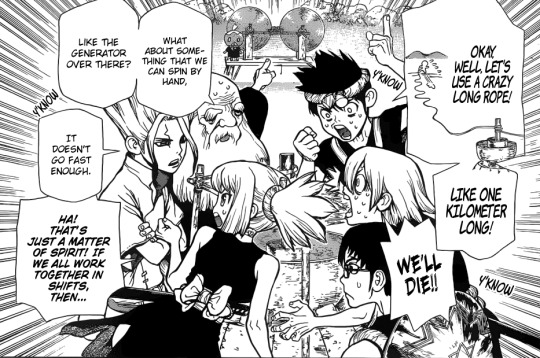
the true zeitgeist of dr stone is the back and forth problem solving to build various contraptions to achieve various goals. every character has their own skill sets and personalities that allows them to bounce off of each other and play a role in reaching goals. the cast also has pretty great chemistry making exchanges and banter very entertaining 99% of the time.
while i think the characters are very well written, i have that opinion within the context of dr stone being a plot driven story, not character driven. character arcs are subtle and take a backseat to the wider plot goal posts. i dont consider the low level of character development to be a bad thing, the story just isnt about that and the cast is charismatic and enjoyable for the roles they play.

the setting of dr stone is very well realized in its simplicity. the artist, boichi is capable of drawing some beautiful scenery. the art overall i think is much more good then bad, and the character designs are fun and distinct if you can tolerate the girls looking kinda busted (boichi.... can not draw women i fear) ironically i found the moe eyes growing on me. but ill be real, the fan service isnt that bad. annoying, yes, but not nearly as bad as it could be. you wont ever see a guy fall on top of a girl and accidentally grope her boobs, so much as the occasional jarring ass shot and weird angles around badly drawn women. that said the young girl and mascot character, Suika, is never sexualized in this way, even though she is grown up by the end of the story
i wont claim the girls in the cast dont suffer from some of the typical shonen misogyny, but Kohaku and Suika at least are very well realized characters and solid female leads i like a lot.
i always feel like i should be harsher in my criticism towards this series, i do genuinely consider it enough of a mixed bag of quality ill hesitate to recommend it to people (tho lets be real, the fan service is always the biggest barrier recommending any animanga regardless of quality despite that) but i really do struggle to make a nuanced critique. even things that are more controversial among its fans, like the way the story progresses in its final arcs, i struggle to complain about. structurally the story delivers on its foreshadowing and progresses in ways that make sense and i do think was planned out by at least the half way point of the story.
the biggest most glaring issues are... extremely basic. very typical levels of shonen misogyny and weird politics. it gets kinda weird in the middle in a way i dont really feel equipped address in detail but am grateful a lot of that.. mess doesn't carry over into the rest of story. it gets tied up in bad, but also very common and unquestioned, colonialist mindsets and tropes just as much as it SUBVERTS and DECONSTRUCTS those same bad ideas. which honestly drives a lil nuts if i think about for to long. the narrative loves to kneecap its own themes and progressive philosophies to a frustrating degree, but i do genuinely think the end product is far more good then bad.
i have a lot to say about this manga, but know are to actually articulate maybe a fraction of it. after watching enough youtubers attempt to review it, im clearly not alone in that. lots of people seem to share my struggles in expressing why they also think dr stone is so good. and i think that complexity of how it grabs people in ways that arent easy to understand, are in itself is an aspect of what makes it what it is.
its a very good adventure shonen series that i think deserves a bit of staying power
9 notes
·
View notes
Text
any way the wind blows review!!!
gonna put it under a cut but tl;dr i really really loved it and even the things that i was on the fence about i’ve decided i love as well lmfao
so i kind of knew going into both this and wayward son that the plot wouldn’t really EVER be as narratively satisfying as carry on’s. it would definitely be interesting and have a lot of cool thematic elements, but in terms of being a grand deconstruction of the “chosen one” genre, it couldn’t ever get better than carry on. and i’m so happy rainbow didn’t try to MAKE it that. she didn’t pull a supernatural and up the stakes to impossible, outlandish degrees. both wayward son and awtwb had realistic, fascinating plots that served as a metaphor for the internal struggles of the characters.
the reason i’m beginning this review by talking about the plot is because it’s what i’ve seen the most criticism directed towards. and like i DO get it, i also was taken aback at first at how the actual plot is kind of background noise for the first couple hundred pages. but like...i think it WORKS. again, this whole trilogy is a deconstruction. that’s its PURPOSE. obviously it’s doing other things as well, but it started by taking this well-worn and well-loved trope and completely turning it on its head, giving us permission to acknowledge all the damage it causes and how our love of this type of story is honestly kind of harmful. we turn off that part of our brains when we read harry potter or something else with traumatized child protagonists, in order for us to actually enjoy it, but the simon snow trilogy has always said, “hey, this is kind of fucked up, huh? you’re allowed to think that.”
anyway, the way that translates to the plot here is that there’s not always some huge mystical big bad, or obviously evil antagonist. the horror can be going on in the world around you, in the background of your day-to-day life dealing with your own shit, creeping up on you until suddenly your loved ones are spouting off nonsense that is an absolutely CHILLING allegory for eugenics, by the way, which i’ve seen NOBODY talk about. the clear political parallels were so well done, but not heavy-handed, and they worked wonderfully as an ending to this story. simon at the end being a target for an angry mob, who are victims of intense ableism themselves (the metaphor of being a weak mage = having a disability), how these religious extremists will point at what they deem abnormal and use them as a scapegoat, the disgusting “survival of the fittest” mentality leading to “i can make this society great again” - it was all just incredibly well written, in my opinion. and the fact that it happened so slowly, in the background, made it all the better. you don’t really notice how bad it’s getting until it’s BAD.
it also, again, works so well as a manifestation of the characters’ inner strife. others have put it better than me already, so i won’t talk about it too much, but the fact that the book is saying you don’t need to be like everyone else in order to accomplish great things and have a good life, you don't need to have magic, you don’t need to be human, you don’t need to be neurotypical or able-bodied or straight or white or ANYTHING these people will have you believe in order to make you obedient to them and hateful to others -- it’s fantastic.
this kind of segues into the other big criticism i’m seeing, which is simon and baz’s one-day breakup. again, this has already been analyzed well, so i won't ramble about it, but wayward son was their breakup. metaphorically speaking. and i’m glad that it didn’t take some big, grand moment for them to get back together, even though it would have been narratively cathartic. that’s not how life works - it was so much better and realistic to have simon face the harsh difficulties of TRYING than dragging out a separation plot line that would have added NOTHING to his character. or baz’s. the only thing about their entire relationship that i would have done a bit differently is shorten the timeline, because a year and a half is a very long and honestly unrealistic time to go in a relationship without talking about sexual history or going on dates, even if there’s a lot of baggage. but that’s not that big a deal and i’m easily able to look past it.
(as a side note I'm getting annoyed at seeing all these takes that there’s too much sexual content. like i get it because the first two books are solidly YA and this is being marketed as YA even though it’s definitely NA, but like....sex is important. sex scenes and sexual content are an extremely important part of depicting the human experience. and lack of sex as well!! every single intimate scene between them was NOT super graphic and had such incredibly important significance narratively and character-wise - and yeah that includes any kinks that were brought up, like jesus they’re in their 20s and have been in a non-sexual relationship for a year and a half i think it’s pretty fucking relevant that there are intimate scenes!!! anyway moving on.)
i really loved penny and shepard’s plot - their relationship was so wonderful and charming and excellent for their characters, and i only wish we could have gotten their demon plot threaded into the larger picture, because after shepard was cured it felt like they were just standing there. that’s one of my very few complaints about the book. but they’re such good characters and i love them SO MUCH.
AND THANK GOD FOR AGATHA AND NIAMH. like i cannot put into words how fucking happy i was when i realized where that was headed. the cinematic nature of agatha and niamh helping the goat give birth while simon’s flying in the chapel and being targeted by a mob was just. so cool like i can’t even describe it it was so coooooool and then agatha and niamh KISSING and agatha found her PLACE and I'm so happy for her.
just in general the characters and relationships were fucking exquisite. i can’t help but love the way RR writes, especially her dialogue. it’s so real and three dimensional and her characters truly come alive and i care about them and love them so much. i’m so happy they’re happy, i wouldn’t have been able to stand it if they weren’t.
and everything got wrapped up so well in my opinion!! i don’t know what the hell people are talking about when they say they still have questions, like girl what about??? simon found his family, simon got a sword that isn’t tied to trauma, baz found out that he’ll get to grow old with simon, all their families are okay, penny and shepard are in love, agatha’s herding goats and a lesbian, there will probably be new threats and antagonists but they'll be able to handle them, life will continue to be difficult but they’ll get through it like WHAT do you not understand what’s not clicking i genuinely want to know.
ok actually i have ONE single question and that’s. did baz pick up the sword at the end. because the way it’s written it sounds like he did and i like do not understand that at all. someone answer please.
anyway that’s my review 10/10 would recommend
77 notes
·
View notes
Text
Madoka Magica Is Not Good Because It’s Edgy, Part 1: Homura and Madoka’s First Conversation. (SPOILERS FOR THE WHOLE SHOW)

Don’t you hate it when a piece of media you like becomes popular for the wrong reasons?
If you haven’t watched Madoka Magica there’s two options: either you know nothing about it but your friends keep recommending it to you, possibly in between evil snickers, or all you know about it is that it looks cute but it’s secretly fucked up and edgy or “a SuBvErsiOn/DeCOnsTruCTion of the magical girl genre”. A part of the magical girl anime fandom hates this. Anyone who has seen more than 2 magical girl shows can tell you that the genre is not nearly as flat and formulaic as everyone makes it up to be, so to some the popularity that Madoka gained simply by subverting the expectations of the people thinking it was another sailor moon ripoff is undeserved.
Thing is, Madoka Magica is legit one of my favorite animes of all time. I say that as someone who has other 3 magical girl shows in that particular list. So while I understand the complaints from the community I also think some of that hate is somewhat undeserved. It’s not the show’s fault that people on the internet don’t know how to sell it to others except by deriding the whole genre because they don’t respect it. The point of these posts is to highlight some of my favorite moments that I think deserve commendation on account of how well written they are, so if you don’t want spoilers then this is the sign I’m giving to you about wether you should watch it or not: you should, because it is well written and directed.
With that said let’s dive into this scene from the first episode and how it’s crucial to the rest of the show. SPOILERS FROM HERE ON OUT.
If you have watched the whole thing, then you already know about the foreshadowing. The dialogue of the scene is constructed in such a way as to mislead an inattentive, likely trope-minded viewer about Homura’s intentions without outright lying to them about what’s really going on. It gives the first episodes, which are the more subdued so to speak, replay value.
However I also think this scene is important for what it says about Homura’s character beyond what we will eventually come to find out about her intentions, because it also says a lot about her personality.
First there’s the fact that she initiated the conversation at all. On a first viewing this tells us that Homura is proactive, she’s getting to the heart of the matter as quickly as she can. On a second viewing the conversation reveals the hints of desperation in why she wants to do that, but also the tension in how much she’s allowing herself to reveal here. She is certainly trying to be somewhat open to Madoka, both out of the pain of not being recognized but also in a display of sincerity, hence telling Madoka to call her by her first name. Sadly this also introduces us to one of Homura’s main flaws: her inability to properly communicate her intentions and feelings. Part of it is due to her self-imposed façade of composure, part of it is the trauma genuinely forcing her into the façade of composure, and part of it is probably her loneliness. The point is, while Homura knows how to project the ethos of the arguments she presents -”Don’t turn into a magical girl, you will loose everything”- she never quite gets the pathos needed to fully convince the other girls -”I’m telling you this out of concern for you”-.
There are exceptions, however. In their conversation after Mami’s death, Madoka picks up on Homura’s loneliness when she says that Mami will be lucky to have someone remember her and quickly tells her that she will also remember her. Homura decides to leave aside whatever mixed feelings this causes in her to give her another vague warning, which is a wrong call since something so vague can’t really stick in people’s heads. Sayaka is also perceptive (and at the moment also cynical) enough to get through the heart of Homura’s frustrations when she’s in her lowest moments, but I’ll talk more about that particular conversation in another post. Mami is sadly way up her own ass, no offense, to even conceive of Homura’s true intentions, which isn’t helped by her general attitude, but you can’t blame Homura for not telling her the truth outright considering that she witnessed first hand just how dangerous her frail mental state can be. Her approach of cagey interests really only works to convince Kyoko, the only non-idealist in the rooster. Lastly there’s the moment when she bullets Kyubei in front of Madoka to prevent her making a contract, when her emotions are afloat and she means exactly what she says but still doesn’t trust the situation enough to blurt out the whole truth and also Madoka is too preocupied with Sayaka at the moment to be there for her. It truly is the saddest moment in the show in retrospective.
Going back to the matter at hand, Homura’s desperation is also shown in the timing and change of scenery throughout the whole thing. The conversation only last like, barely a minute and a half. Throughout it we see close up shots of Homura’s angry face, which increase when Madoka starts praising Homura’s name, and also as the scene changes from the warm clear well illuminated yellow of the classroom section to the dark stark cold blue of the hall. The tension reaches its climax and it is also implied that Homura had been walking even faster at this point, given the distance between her and Madoka. Then the tension keeps as Homura asks Madoka if she values the people around her, and it stays dangling while Madoka gives her answer. Finally it eases a bit with Homura’s response, but leaves with a punch with her final warning, which in turn warns us that the conflict, thematic and otherwise, of these two characters isn’t over. It’s a brilliant display of what Akiyuki Shinbo and Gen Urobuchi can accomplish working together.
That’s all I have to say about this for now. In the next post I’m gonna talk about Mami and her three spectacularly written episodes.
#puella magi madoka magica#pmmm meta#homura akemi#madoka kaname#madoka magica#sayaka miki#tomoe mami#kyoko sakura#part 1
112 notes
·
View notes
Text
I probably caught a few minutes of Sailor Moon or Card Captors here and there while channel surfing, but I don't think I've ever watched a full episode of either.
If Revolutionary Girl Utena counts (ehhhh, not really), I watched the first half in 2001.
Otherwise, I think the first magical girl anime I deliberately sat down and watched more than a few minutes of was Glitter Force, a dub of one of the later (and more self-parodying) Precures. Not because I expected it to be an exemplar of the type, but because it was there and I wanted to see something that wasn't a deliberate deconstruction. Also, at the time I was seeing a LOT of Precure posts from mutuals on Tumblr, so I was looking for a bit more context, even if it wasn't from the "correct" Precure.
I've largely approached the genre from weird (and mostly deconstructive) directions, like Ryk Spoor's _Princess Holy Aura_ novel, the Jade Street Protection Society comic, and the Glitter Hearts PbtA TTRPG that I got in an itch.io bundle.
pls reblog! me and my friend have been talking about magical girl animes recently so i need to know
4K notes
·
View notes
Text
A intro to manga, anime and light novels
Hello again, long and first time readers..
Its time for the long-awaited manga review section. Now before we get into the nitty gritty there a few things we need to cover first. Seeing that I will be coving light novels, mangas, and anime there are a few terms that we need to go over. Most of these terms will be covering the different genres and subgenres. Seeing that not everyone is literate in this word, it may be a good idea to cover this before we get into the good stuff.
What I'm about to go over are the genres of light novels, manga, and anime. Like many television shows and movies; manga and anime are broken up into different genres. Many of these are pretty self-explanatory, while others are more unique, as you are about to find out. I have included a few examples with of the sub-genres. I'm no expert, as I’m learning along with a few of you. Some of the examples I've given are some that I've read or heard of.
List of Major Anime/Manga Genres
Action
Adventure
Comedy
Drama
Slice of Life
Fantasy
Magic
Supernatural
Horror
Mystery
Psychological
Romance
Sci-Fi
Looking at this list you can see many familiar genres of movies and TV, that you may watch. I won't go into a detailed description of these, because everyone should know these. Now for the sub-genres, it's a bit of a different story. Many of these are unique to anime and manga. It is these that I will give a little description along with a popular anime or manga.
List of Anime Subgenres
Cyberpunk= This type of anime is a subgenre of sci-fi. It usually displays a future where society has become more ingrained with technology at the expense of social order. The setting is typically a dystopian future where the technology may be doing more harm than good.
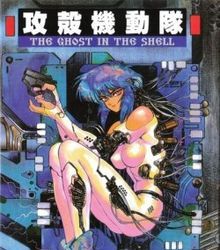
Game= The game category encompasses shows revolving around the idea of gaming and playing. The anime can feature a card game, board game, puzzle game, or even a virtual online game. As long as it concerns any playable game of any kind, it belongs in this category. Sometimes, even video game-based shows can count in this selection.
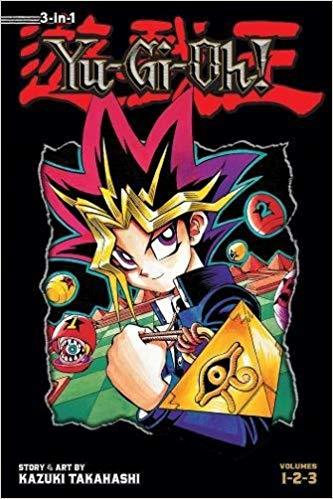
Ecchi= The word ecchi comes from the sound of H in the word hentai, which in turn means pervert in Japanese. This sub-genre is generally accepted as being full of sexually provocative scenes (mild enough to be viewed by the general audience) and scenarios derived from innuendos and humorous situations. It’s a fact that ecchi shows are taking an upswing nowadays as more and more titles are produced every season. More often than not, ecchi is paired up with comedy as both genres compliment each other well. This, in turn, serves as a buffer that prevents the shows from crossing the line and delving into something less appropriate for general audiences.

Demons= Originally just an infrequent theme, the rise of demonic characters and themes have given rise to this sub-genre. The term demon does not only encompass literal demon characters. It also extends to other entities such as monsters, beasts, ghosts, and other demon-type figures. The demons present can come from biblical backgrounds or come from Japanese culture. Believe it or not, this category doesn’t just come hand-in-hand with the horror genre; it surprisingly blends well with other genres as well.
Harem= If you see a reluctant male character surrounded by multiple female characters who all adore him, then you’re probably watching an anime of the harem sub-genre. This type of show typically features more than two female characters go head-over-heels for a single male character. Anime in this category is typically within the comedy and romance genre. It's possible that a harem anime can have no romance and feature mostly slapstick comedy.

Josei= Josei is actually a demographic but is also considered a general category in anime. It specifically targets female viewers around the age range of 18-40. These shows depict life and romance in a more mature light, usually with more grounded realism and less idealistic fantasies. The sub-genre is fairly wide and doesn't necessarily have to focus on romance. It merely needs a narrative that caters to the mature woman. Josei originated from manga during the 80′s. Girls who grew up reading shoujo stories from previous decades wanted stories for adults.
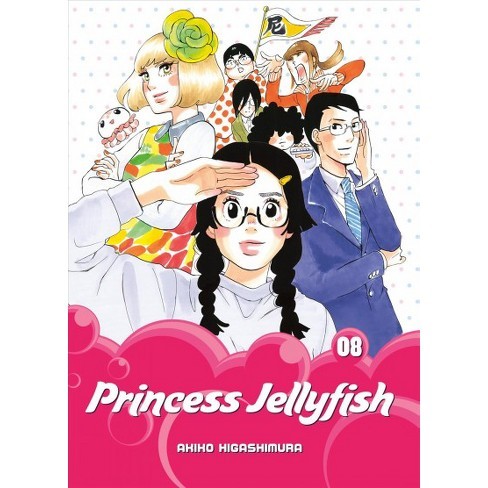
Martial Arts= Martial arts play a big role in every anime that has fighting/battles in it. Whether it's hand-to-hand combat, swordplay, gun fighting, or armed combat, there’s some kind of martial art element that plays through them. But did you know that there are shows that are primarily focused on martial arts itself and their battle techniques? There’s a lot of them, and they mainly involve hand-to-hand combat and technician battles.
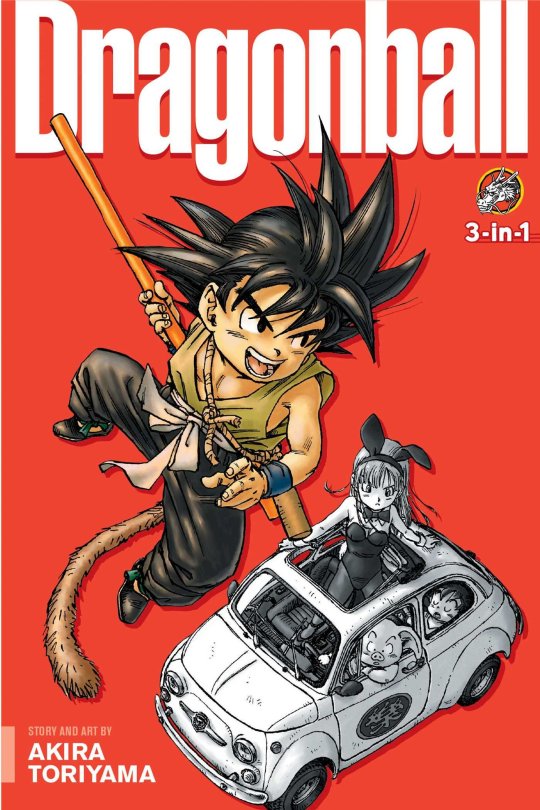
Kids= A lot of people say that anime is just for kids, but that’s not really true. As a matter of fact, there are only a few numbers of anime that are precisely catered towards children. These shows are contained within the kids' sub-genre. These shows are mild, light, and insightful, which makes them perfect for children 12 and under.
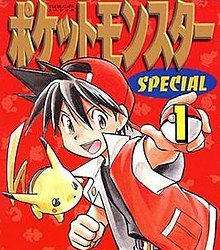
Historical= As the name suggests, historical anime revolves around events in history and moments of antiquity. Shows of this sub-genre are typically set in Ancient Japan and the feudal period. Other settings such as the Middle Ages and medieval period of Europe exist but they’re much more rare in anime. As long as the time or setting (or even elements) are old and ancient, then the series can be considered a historical anime.

Hentai= Hentai literally translates to "pervert" in Japanese. This is the R-18 (mature) domain of the anime world. This sub-genre commonly depicts nudity and highly explicit content. Unlike ecchi, the focus here is on explicit sexual content rather than on storytelling and narrative progression. That is why the shows in this category are usually brief and lacking in substance.
Isekai= Isekai translates to "another world." This sub-genre typically has a narrative where a protagonist somehow gets transported to a different world. The new world is more often than not in a fantasy setting, occasionally with traits pulled from JRPG games.
This category of anime exploded during the 2010′s and arguably dominated the decade. A good portion of isekai anime is adapted not from the manga but rather from light novels. The most popular series in this sub-genre maybe Sword Art Online. While the world featured there was just virtual reality, it did feature a fantasy setting that would be mimicked in other anime.

Military= As the name implies, this sub-genre involves the military in one way or another. War may also be a huge part of military anime. One thing to note about this category is that it is often coupled with the mecha and action genre.

Mecha= Mecha stands for mechanical (as in mechanical units or robots). You’ll never see a mecha anime without a robot or mechanical suit in it. That’s the most important element of it. And while this sub-genre is rising in fame as the days go by, it almost always uses a standard formula to carry the plot. As a general trend, mecha is often seen alongside the military, sci-fi, and action genre.
This may very well be the most iconic anime sub-genre as there is a multitude of memorable shows in this category. The mecha can be considered to be one of Japan's most popular exports. Some of the earlier iconic titles from the late 70s and 80′s include Mobile Suit Gundam, Mazinger Z, and Super Dimension Fortress Macross. Neon Genesis Evangelion is considered to be an iconic and dark deconstruction of the genre as it examined the psyche of young pilots. GurrenLagann was a massive hit that brought the genre back to its hot-blooded and idealistic roots. With a rabid fan-base that loves mecha designs, this genre is one that has been consistently popular over the years.
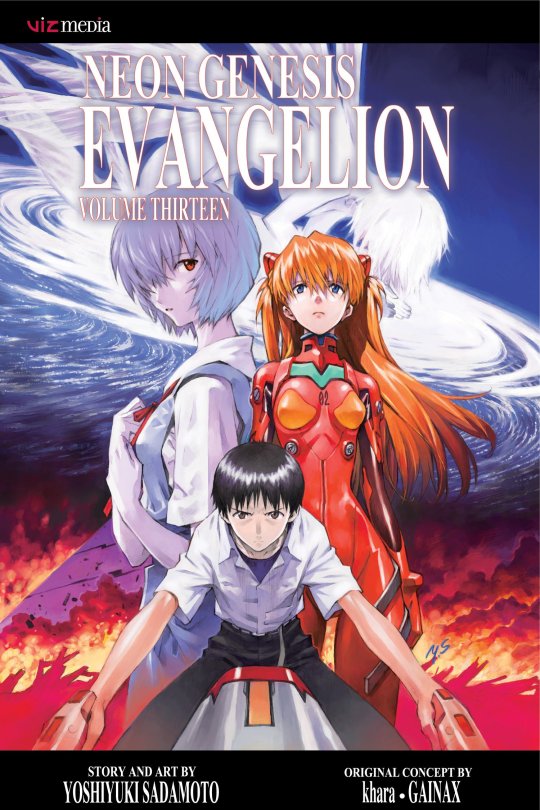
Music= Anime shows in the music sub-genre aren’t that popular nowadays, but they do exist and they are very timely. These shows typically focus on singing, dancing, or playing musical instruments. These usually fit within the larger categories of comedy and drama.
Parody= A parody anime is one where countless numbers of other anime references are showcased throughout the plot. It might be a popular running gag, a famous symbol, a character reference, or any other attempt at bringing another show into its domain. One anime worthy to note is Gintama. They often use similar elements from other anime to showcase in their own show.

Police= The police sub-genre emphasizes the life and struggles of law enforcement in their line of duty. Police-based characters have shown up in numerous shows and there are now anime that could be considered as police procedural. This genre isn't exclusive to police officers; detectives, investigators, and enforcers of any type are included as well.
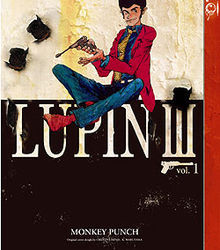
Post-Apocalyptic= Post-apocalyptic anime basically show that is set in a world that is in a dystopian state. This could mean the world is destroyed and/or humans are nearly extinct. Post-apocalyptic settings were merely a theme in the past, but an influx of titles bearing this backdrop over the years have made it become a sub-genre on its own. This type of anime has become more and more popular by the day.
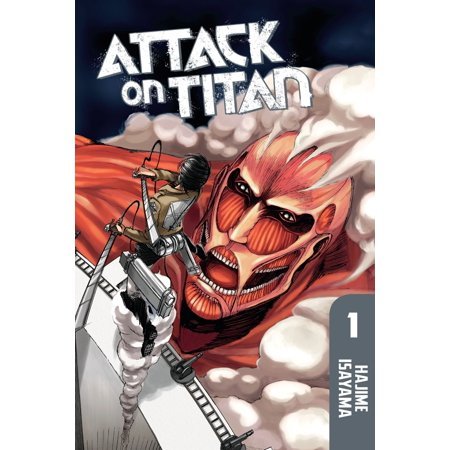
Reverse Harem= A reverse harem anime is typically a harem series where the gender roles are switched around. There is one female character surrounded by multiple male characters who are all potential love interests. Like the traditional harem genre, anime of this variety is usually within the comedy and romance genre.
School= There are countless anime that use the school as a setting. An anime can be considered a part of the school sub-genre if a school is the primary setting and the anime deals mostly with school and student life. This type of anime is usually seen within the comedy genre, though there are some entries in drama as well.
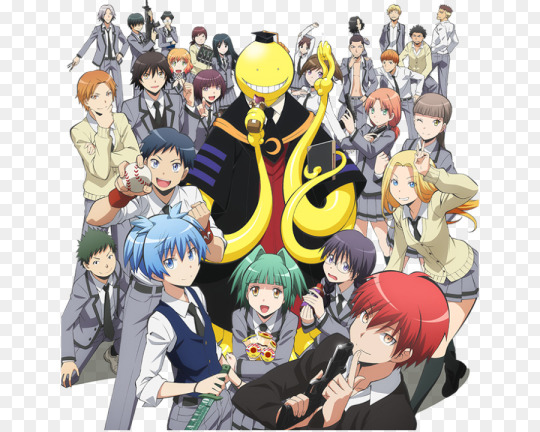
Seinen= Seinen is actually a demographic but is also considered to be a category in anime. It’s a sub-genre that specifically targets male viewers around the age range of 18-40. The shows here are depicted in a more mature light and often include more explicit content such as gore, sex, and violence. More cerebral narratives are present as well.

Shoujo= Shoujo refers to the demographic of young girls. This sub-genre specifically targets female viewers around the age range of 10-18. Most of the time, shoujo anime works hand-in-hand with the romance and comedy genre, particularly with the former. The protagonist is traditionally female and the narrative focuses on romance as well as personal growth. The world in these shows is often very idealized.
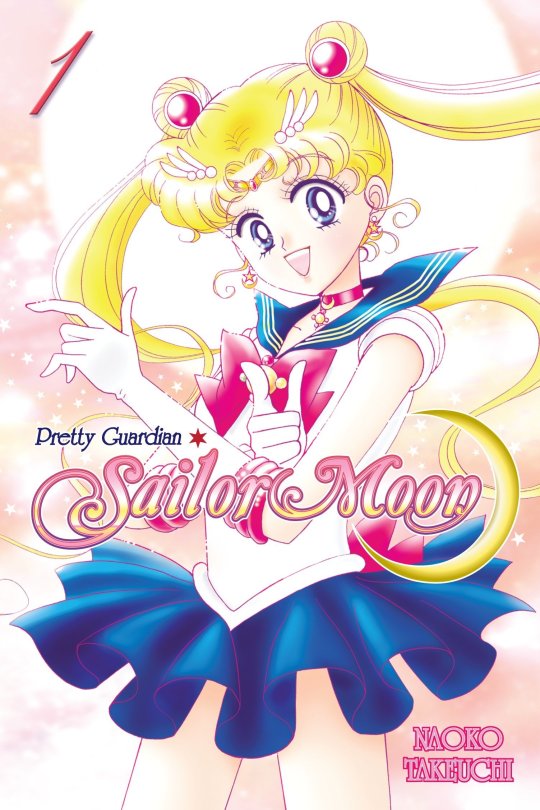
Shoujo-ai= Shoujo-ai literally translates to "girls love." The typically young female characters in shojou-ai anime show love and affection for each other. The romance is usually milder in comparison to the more explicit yuri genre. Shows in this category portray blooming feelings of love and romance rather than intimate relationships.

Shounen= Shounen refers to the demographic that this type of anime targets, which is male viewers around the age range of 10-18. These shows are usually a combination of action and adventure and are typically adapted from serial manga series. As such, these anime tend to have lengthy runs. One Piece currently has over 800 episodes and is still running. These shows are typically the most popular with mainstream audiences. They have done very well when exported to foreign markets thanks to their relatively simple plots and focus on action.

Shounen-ai= Shounen-ai literally translates to "boys love." The male characters (typically younger boys) in these shows display tender affection for each other. The romance in shounen-ai is generally milder when compared to the more explicit yaoi genre. There is usually more focus on developing romance than actual relationships.
Space= The setting of space has always been massively popular. With so much anime taking place there, it has become a sub-genre in itself. Any anime set in the cosmos can be labeled in this category. Space anime is often within the larger mecha and sci-fi genre.
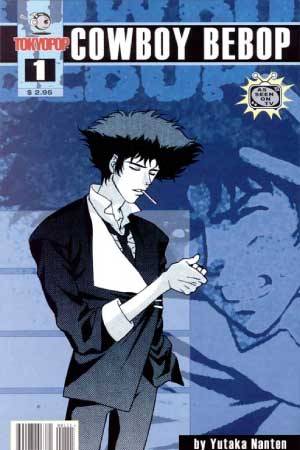
Sports= Pretty much self-explanatory, sports anime are shows that cover characters engaging in athletic competition. Popular choices in this category include basketball, tennis, baseball, and soccer. Other sports exist as well (including those that you wouldn’t expect showing up in anime). As time goes on, more and more of these series are produced. Just like real sports, shows in this sub-genre are action-packed!
Super Power= You know you're watching a superpower anime if you're seeing an array of explosive superpowers scrambling right on the screen. If you see bursts of energy balls, death-defying attacks, and opposing forces battling it out throughout the story, then that means you're probably witnessing a show in this sub-genre. These shows generally fit in the action category.
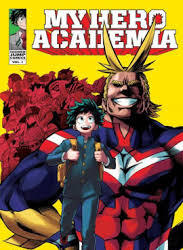
Tragedy= As the name implies, the tragedy sub-genre revolves around tragic events or phenomenon where the characters are deeply involved and affected. Tragedy comes in diverse varieties such as disasters, accidents, misfortunes, and deaths. These shows are often very dramatic and can pull the heartstrings of audiences.
Vampire= As vampires have become so popular throughout the world, it’s no shock that they’ve also infested the world of anime. There are lots of titles now featuring vampires and they’re not just exclusive to the horror category. They’ve also manifested themselves into other categories such as comedy, romance, and drama.

Yuri= Yuri is essentially the more mature and explicit version of shojou-ai. The female characters are typically older and the series examines their more mature relationships.
Yaoi= Yaoi is the much more sexually explicit counterpart of shounen-ai. This sub-genre covers male-to-male relationships (typically older boys) in a more mature light. There is more emphasis on serious relationships and intimacy.
Well, there you go… a not so short overview of the genre and sub-genres of anime, manga, and light novels. Hopefully, this will help newcomers to this wonderful of books and tv. It is now time to reveal the first series in the socallyawkdude’s manga review….. Tales of Wedding Rings by Maybe. The volume 1 review should be up soon, as i’m finishing up the art work for the post.
Till then this is your friendly neighborhood sociallyawkdude signing off.
#light novel#manga#anime#dragon ball#yu-gi-oh#neon genesis evangelion#cowboy bebop#princess jellyfish#hellsing#my hero academia#Bleach#fate/zero#assassination classroom#attack on titan#lupin the third#sword art online#saga of tanya the evil#pokemon#ghost in the shell#sailor moon#sailor moon crystal
998 notes
·
View notes
Text
Coming to Terms with Homura Akemi, My (Formerly) Least Favorite PMMM Character
Or, How I Learned to Stop Whinging and Love the Emo Meguca!
I have a…complicated history with my favorite anime’s main character (and yes, Homura is the main character. Madoka might be the title character and the show’s POV protagonist, but like most things in this series, that was a clever ruse, and it’s really more about Homura’s journey than Madoka’s). The first time I watched the show, I walked away feeling kind of ambivalent toward her, even mildly hostile. And that’s weird, right? I mean, just look at her! Look how her character arc plays out! She was practically grown in a lab to be my favorite! And you know what? In pretty much any other series she would have been my favorite, no doubt. She would have been a first pick Fav of the Day, the starring character in whatever fanfic I wrote about it, etc. But since the show she premiered in is anything but traditional, the way I eventually came to love each character turned out to be a little…unorthodox.
Now, I’ve gone over most of this before, so sing along if you know the words. My first time watching Puella Magi Madoka Magica went a little something like this:
Episode 1: Blue funny, Pink cute, Yellow badass, Purple mysterious.
Episode 2: Blue favorite, Pink alright, Yellow probably evil, Purple mysterious.
Episode 3: Yellow’s not evil after all, and now is the dead. My bad.
Episode 4: Pink getting all fucked up, SOMEONE SAVE BLUE!
Episode 5: Hate Red for attacking Blue. Kick her ass, Purple!
Episode 6: Still hate Red.
Episode 7: FUCK YOU, BUNNYCAT! Red’s not so bad after all. But someone save Blue!
Episode 8: Aw, hell no, Purple! You don’t threaten Blue like that! You go, Red! You’re pretty cool after…oh shit. BLUE, NO!
Episode 9: GO RED! GO PINK! SAVE BLUE! YOU CAN DO IT, I BELIEVE IN…no.
Episode 10-12: Stuff is still happening with the plot, but I no longer care. My heart has been shattered, all light has gone from the world. My babies are gone. If only they had more time together, if only there was someplace they could reunite, really get to know one another, and go on adventures together…huh.
So yeah, that’s the story of how I fully got on board the KyoSaya train. Obviously, writing Resonance Days only solidified that, and coming across A Happy Dream by angel0wonder, AKA the potato lady AKA @smxmuffinpeddling (wazzup?!?!), pretty much cemented it as my top reigning OTP.
Now, obviously I got invested in the whole story as time went by. Subsequent rewatchings of the show, mainly through convincing people to watch it blind so I can laugh at them when they get to certain scenes (don’t hate, y’all did it too!) and taking part in online discussions really got me into the show as a whole instead of just being confined in my little KyoSaya bubble. But coming to love the other characters for their own merits took some time.
Mami was next. I’ll be honest, I just didn’t care all that much for her during my first watching, mainly due to believing that she would turn out to be evil for the first couple of episodes (I blame Disney and their recent trend of turning almost every kindly mentor/confidante figure into the bad guy lately), and me being more surprised that I was wrong when she died instead of being shocked that she was killed. Again, had nothing against her, that was just my reaction the first time around. However, she was included in Resonance Days because it felt like the logical thing to do, and she turned out to be so much fun to write for that I really came to love and care for her character in general, and her relationship with Charlotte ended up becoming one of my favorite parts of that story.
Madoka honestly took more time. I think the main reason I wasn’t all that invested in her is that she was pretty passive in the series proper while my attention was more on the more proactive side characters. And again, this wasn’t a bad thing! In fact, it was a clever bit of deliberate storytelling, as it’s revealed that she originally was a proactive main-character type, only to unintentionally get relegated to her observer role by the butterfly effect caused by Homura’s time loops. But anyway, the thing that made me turn the corner on Madoka actually also ended up being fanfiction, but not one of my own. Specifically, I came across a popular, yet also somewhat controversial, fic called Persephone’s Waltz (and wazzup, @erinptah!), in which Homura decides to just stop beating around the bush and lock Madoka up in a basement until Walpurgisnacht had passed. And as weird as it sounds, making Madoka a prisoner actually gave her more agency, as the fic really went into detail about the psychological effects of being a kidnapping victim, from the strange rituals to the escape attempts to coping strategies to Stockholm Syndrome to bouts of depression and so on and so forth, all the while never deviating from her core character. It really got me rooting for Madoka and, by extension, invested in her character in canon as well.
That just left Homura.
By then, I had gotten over being a little sore at her for trying to kill Sayaka that one time, and I was interested in where her actions would take the plot. I just wasn’t interested in her, per se, as I hadn’t had an icebreaker moment like I had with the other characters.
And then The Rebellion Story happened.
The Rebellion Story: PMMM’s End of Evangelion
Puella Magi Madoka Magica is often compared its nearly two decade-old predecessor, Neon Genesis Evangelion, and not without reason. Like Evangelion, it took a genre mainly known to be fun and kid-friendly (giant mechs for Evangelion and magical girls for PMMM) and turned it on its head, resulting in a brutal and twisted deconstruction that would end up altering the direction that genre would take for years to come. The key difference is that Evangelion’s brilliance was in many ways an accident, with the bizarre places it went being largely informed both by its troubled production and its showrunner’s personal demons staying bottled up through the early part of the show but letting them loose later on, whereas PMMM was meticulously constructed from top to bottom to become the hand-grenade to the genre that it would become. But in the end, the effects were the same. They even both had a follow-up movie that was not originally supposed to happen that ended up being highly divisive among fans due to the shots they took at the fandom that had sprung up around the original series, even if The Rebellion Story wasn’t nearly as spiteful as End of Evangelion was.
Now, I’ve already gone into at length about how PMMM brutally dissects and deconstructs the Magical Girl genre, and it did it so thoroughly that the genre itself was totally wrenched in a new direction, much like Evangelion did to the Giant Mecha genre. But after you’ve completely taken apart the genre in your first season, where exactly do you go? How do you continue when your work is seemingly done?
The answer: deconstruct yourself.
Much as Puella Magi Madoka Magica went after the Magical Girl genre, The Rebellion Story went after the fandom that had sprung up in the original show’s wake. The first third of the movie gives the fans what they claimed they wanted: a traditional Magical Girl reimagining of PMMM where everyone is alive and working together, everyone is mentally and emotionally healthy, the two fan-favorite ships are just a kiss away from being canon, Kyubey is now a cute and silent mascot that helps out instead constantly manipulating everyone around him, and even the most popular witch is back as a benevolent secondary mascot in a happy friendship with the character she had killed. We see Madoka and the Moemura version of Homura being adorable together, we see Kyoko and Sayaka goofing off, we see Mami cuddling with Charlotte with nary a head-chomp in sight, we see everyone being just being friends and protecting the city from weird but essentially non-threatening monsters. It is basically the summation of a hundred fanfics that had been posted between the end of the show and the release of the movie.
But this is still PMMM, and something is not quite right.
We all know what happens next. Homura starts subconsciously noticing that something is off, she gradually becomes Terminator Homura as she investigates the situation and regains her memories, and the perfect happy world is exposed for the farce that it is. Things collapse, and the truth is revealed: Homura had become a witch that had been trapped inside her own soul gem, those close to her had been lured in to complete the illusion, and of course it is all Kyubey’s fault. Because this is PMMM, and Homura doesn’t get to be happy.
But the movie doesn’t stop with that reveal. Once we learn the truth, it changes targets. It stops deconstructing the fans, and instead goes after something else.
It starts to deconstruct Homura Akemi, its own main character.
Despite her promise to continue fighting on in Madoka’s name to protect the slightly more kind world her beloved had created, Homura had found herself unable to cope without Madoka. Her mission had failed, and without that stabilizing force, despair had slowly crept in, corrupting her from within, to the point where (I believe at least) she had been fighting not to honor Madoka, but in hopes that she would fall in battle and be carried off by her goddess. She had been fighting not in hopes of building a better world, but as a way to seek release from her pain. She had been miserable in Madoka’s new world, even moreso than she had been during her time loops.
And because she had been foolish enough to tell the truth to Kyubey, the little rat had taken the opportunity to use her to set a trap. Madoka had been pulled out of Heaven right into the Incubators’ clutches, and it was all her fault.
Is it any wonder that she had been unwilling to accept Madoka’s salvation during the climatic battle? Is it any wonder that her own labyrinth had featured her own familiars dragging her away to her own execution? Homura hated herself. She hated what she had become, she hated what she had allowed to happen, she hated that she had failed so utterly and completely.
In fact, I’d say that this movie shows something about Homura that I don’t think a lot of people will appreciate me pointing out, and that is as much as Homura was single-mindedly devoted to Madoka, she never really came to know her. I mean, how could she? She only knew Madoka over the course of a few of a few infatuated weeks the first time around, which she then repeated over and over and over again, becoming increasingly traumatized over time. I don’t doubt that her devotion to Madoka is real, but The Rebellion Story does seem to suggest that after a while she was fixated on Madoka as an ideal rather than Madoka as an actual person, something to be protected and possessed rather than as a living, breathing person with her own autonomy.
Now, am I saying that Homura is a bad person and that anyone who felt inspired by her resilience and devotion is wrong? Of course not. Am I saying that anyone that ships MadoHomu is bad, promoting toxic relationships, etc.? Hell no! What I’m saying is that due to everything she’s been forced to endure and fight again, she is a very mentally unhealthy individual, one who is in desperate need of help. And if an actual relationship between her and Madoka is going to realistically work, well, first something drastic will have to happen to upset her new system and give Madoka her power back, but Homura is also going to need tons of therapy.
As I said before, Homura’s decision to rip Madoka out of the Law of Cycles and turn herself into Homucifer has been pretty controversial, with many people claiming that it betrayed her characterization. To those people, I would say that they never really knew the real Homura Akemi. The show set up an idealized version of Homura, and people had that ideal imprinted in their mind. And I can’t really blame them for that. The show ended on a big, optimistic moment with Homura making a big speech about how she was going to keep fighting in Madoka’s name. It’s all very stirring, and I can’t fault anyone who would feel betrayed by their Homura acting against that promise.
But as a sadistic bastard in another dark show that is now also very controversial once said, “If you think this story has a happy ending, then you clearly haven’t been paying attention.”
Homura Akemi Did Everything Wrong, and It’s Okay to Admit That
Even though The Rebellion Story got me interested in seeing where the whole Homucifer vs. Godoka thing would go, I still wasn’t all that invested in Homura as a person. I was entrenched too deep in my KyoSaya world, and everything outside of that was just so much plot. Most of my focus was on Resonance Days, which just didn’t involve her at all.
It took years, but three things finally cracked me out of that shell. The first was writing Walpurgis Nights, of course. Granted, Homulilly was more of a Moemura than Homucifer, but that story really made me dive deep into her innate insecurities, to explore her struggles with self-loathing and her reliance on Madoka for any kind of validation.
The second was watching through a few blind reactions to the series, seeing how other people reacted to her character and the things that they picked up that I had missed. One thing in particular stood out to me: during Homura and Madoka’s first meeting in episode ten, Homura is actually shocked when Madoka casually addresses her by her first name, as no one ever called her by her first name.
And the third might get me some hate, but it was through coming across this little video:
youtube
Now, like many things I’ve discussed in this post, this video has been pretty polarizing, with some people outright hating it and labeling it as slanderous character bashing. The clickbaity title certainly doesn’t help, and I can’t say I agree with all of its points. But the video really isn’t the character-bashing piece that it might seem like. Rather, it’s as much a deconstruction of a character that has been heavily idealized by the fandom, pointing out the many mistakes and, while it certainly was not her fault, how she was driven more by a personal need for validation rather than selfless love.
That’s when it all clicked for me, all the little pieces coming together.
Despite how badass she appears to be, despite how unwavering her adoration for Madoka is, Homura Akemi is someone who was broken from the beginning, who was re-broken again and again, who never seemed to make the right choice, who was never allowed to have what she wanted, who was never allowed to win, until she finally snapped and ripped apart the carefully-laid plans and systems that seemed to be set against her.
Homura Akemi did everything wrong, and that is fascinating!
Consider: when we first meet her, she is a young girl who has known nothing but neglect, who has been shuffled around by an uncaring system her entire life, who is physically weak due to a heart condition, who is terrified by any kind of attention and is genuinely perturbed just by being called by her first name.
Of all the tragic backstories in the series, hers is easily the worst. Mami and Kyoko’s characterizations are both defined by having a single horrific event in their respective pasts that took everything away from them, events that shattered their worlds and which they blamed themselves for. But at the very least they had something before the cruel hand of fate reached into their lives. Homura never had anything! Her family is so completely out of the picture to not even warrant a mention! Her heart condition leaves her constantly balanced on the precipice of death and frequently leaves her weak and in pain. She’s never had a real friend, never had anyone close, never had anything that made her feel good about being herself. So when the Arch of Victory witch ensnares her with suicidal thoughts, it doesn’t really have to try very hard.
And then Madoka came into her life. A cheerful, outgoing girl who showed her kindness, one who called her by her name and said that it was pretty. Someone who came to her during the scariest moment in Homura’s life like a guardian angel and saved her. Someone who was everything Homura had ever wanted: kind, humble, encouraging, non-judgmental, loving, powerful, protecting, and the list goes on.
Is there any wonder that Homura became infatuated with her? Not one bit.
But then something terrible happened. Madoka and Mami were faced with the horror of Walpurgisnacht, and it killed them. Finally Homura had someone in her life that made her feel good about being herself, and that person was stolen from her. She had to watch Madoka fail. She had to watch Madoka die. And she just stood by and did nothing.
And it is then that Homura made her first mistake. Kyubey being the opportunistic manipulator that he is, he took advantage of her vulnerable state in order to add another soul to his quota. And of course Homura accepted; who could blame her?
But consider this: Homura could have wished for Madoka to be resurrected. Walpurgisnacht had been defeated; it was no longer a threat! Then the two of them (or three, had Mami been brought back as well) would have been together, fighting side-by-side! I mean, it would have eventually ended in tears anyway, but Homura had no way of knowing that. As far as she knew, she was in a traditional magical girl story that just so happened to have a bad end, one that she could have fixed.
Instead, she wished to be sent back in time to redo her first meeting with Madoka, only this time as a Puella Magi. That way, she could help Madoka and Mami prepare for Walpurgisnacht! She could protect Madoka!
It wasn’t enough just to have her dearest (and only) friend back in her life. Homura wanted to switch the roles. She wanted to protect Madoka like Madoka had protected her. She wanted a reason to keep existing, a mission, a way to prove her worthiness, because she still hated herself and needed something to validate her existence.
But it wasn’t that kind of show. She didn’t have all the information. How could she have known that Kyubey was being deceptive? How could she have known of the truth about witches? How could she have known that her time-looping would make Walpurgisnacht stronger? How could she have known that each loop would alter the timestream, entangling both Sayaka and Kyoko in its web?
Still, she kept trying. She made herself stronger and stronger in hopes that she would be able to stop Walpurgisnacht in time. She tried to warn everyone about Kyubey and the witches only to be disbelieved. She watched the others die around her again and again. She watched Madoka either die or succumb to despair and become a witch herself.
And then it happened.
That all-important timeline, where everything in her changed.
The one where she and Madoka finally successfully defeated Walpurgisnacht, but lost everything else. The one where they laid side-by-side in the ruins and the rain, as their cracked soul gems grew darker and the darker. The one where Homura resigned herself to becoming a witch.
The one where Madoka sacrificed her final grief seed, Sayaka’s grief seed, in order to save Homura. The one where she made Homura promise to go back and prevent her from making a contract in the first place. And the one where Madoka died again, not in battle against a witch, but by Homura’s own hand.
Something inside Homura broke that day, something that was never repaired and never will be. It was then that Homura shed the last remnants of the frightened, insecure girl she had been and became the Terminator-esque warrior that we were first introduced to. Her missions was clear then: stop Madoka from making a contract and defeat Walpurgisnacht by any means necessary. Nothing else mattered.
But despite all her resets, despite all her preparations, despite (supposedly) finally having all the information, Homura still kept failing! No matter what she did, Madoka always made a contract and became Kriemhild Gretchen. And Walpurgisnacht just seemed to be getting stronger.
Finally, in the timeline that encompasses the show proper, Homura learned the reason why. She was doomed from the start. Her own resetting of time was only building Madoka’s karmic destiny, increasing the power of both Walpurgisnacht and Kriemhild Gretchen. The more she went back, the more the universe itself stacked the deck against her, and now it was all but impossible. And what was worse, she had done it to herself.
Just look at her in that second to last episode, when she’s lying there bloodied and broken, when she’s about to go back yet again but stops herself. Just look at her face as her soul gem darkens as literal years of despair seep out of the defenses she had built up around herself. She knew that it was hopeless, she knew that both she and Madoka were doomed, she knew that she was seconds from finally becoming a witch after all of her efforts were for naught, and it terrified her.
But then, just as all seemed lost, Madoka herself appeared to save her, but did so through the last thing Homura wanted her to do. She took all of that karmic destiny Homura had burdened her with and made a witch that shook the very foundations of reality. Witches were removed from the equation, and Puella Magi who had succumbed to despair were simply allowed to pass peacefully instead of becoming monsters. The contract system and the advancements wasn’t removed, and the girls’ wishes weren’t negated. But the cruelest aspect of it was.
And all it cost was Madoka’s existence.
Yes, Homura was saved. Yes, Madoka was spared of dying or turning into Kriemhild Gretchen. But the person that Homura had devoted her entire existence to protecting was gone, and by her own hand. Only Homura herself was left to remember her.
Can you imagine how that must have felt, to be forced to soldier on while bearing the weight of that knowledge, to know that you had ultimately failed in your mission and had to go on without the only person that had ever meant anything to you? Sure, there was that whole “always be with you in spirit” thing, but that is a poor comfort to someone like Homura. Yes, the show ends on an optimistic note, with Homura promising to fight on in Madoka’s name, but it’s often been said that the only thing that give a story a happy ending is where you end it. And while I’m sure that many fans would have loved to believe that Homura had done just that, had fought the Wraiths to the bitter end until she was welcomed into Madoka’s arms, the sad fact of the matter is that reality is rarely ever so simple.
In The Rebellion Story we learn how true that is. Without her mission, Homura was unable to keep herself together, and despair did finally overtake her. But instead of peacefully disappearing and being taken by her love, she had made the fatal mistake of confessing to Kyubey of all people the truth about the way things were.
Now, why would she do that? Why tell Kyubey about the witches and how Madoka had changed things? Did she not suspect that he might do something with that knowledge?
Personally, I think she did. Maybe not consciously, but I feel that deep down inside, she hated what the world had become, not because the Law of Cycles had removed a significant portion of the pain, but because Madoka had to erase herself in order to create it. Yes, deleting witches was a net positive, but it wasn’t the positive Homura had been fighting to achieve. Madoka had made her promise to keep her from making a wish, and Homura had to execute her right after. So I do think that she told Kyubey the truth because part of her was kind of hoping he would intervene somehow and bring Madoka back.
And he did, and he did so though screwing Homura over. Again.
Within the labyrinth contained within her own soul gem, Homura build the world she had always wanted to exist. The endless loops had been washed away, and she and Madoka were fighting together in a joyful magical girl show. She worked so hard to build a place that would make her happy, but in the end she had been unable to accept even her own gift, in part because she subconsciously knew that something was off, but also because she had conditioned to be suspicious anything that seems like it would be working in her favor.
Learning the truth broke Homura yet again. She had done this. She had been the one to admit the truth to Kyubey, and he had used that knowledge to ensnare Madoka once more. Her love was again trapped by Incubators, and it was all her fault. Is there any wonder that while everyone was fighting to rescue her from herself, she was screaming for them to stop while her own familiars executed her over and over again?
Homura’s decision to rip Madoka out of the Law of Cycles and again rewrite reality is a controversial one, and I get that. But when you put aside the cool, determined badass that she presents herself as and look at the whole of her journey then it only makes sense. She was sick of it all. Sick of being manipulated by the Incubators and their contracts, sick of having her desires denied by the Law of Cycles, sick of being held back by her own inadequacies. She was sick of losing, and that was going to end.
The movie is called The Rebellion Story, and that title couldn’t have been more accurate. Because at the end, Homura rebelled against everything: against the Incubators, against Madoka, against herself, against a world that seemed set against her from the beginning. She forcibly seized control, dominating Kyubey and his ilk, ripping Madoka from the Law of Cycles and reprogramming her to be sweet and docile, and even erasing Madoka and Sayaka’s friendship so that Sayaka wouldn’t interfere. In the end, she finally won.
And she still hated herself. Even after overcoming everything and embracing her status as the world’s new Devil, we see her own familiars throwing trash at her.
And that is the Homura I came to love. The icy, mysterious warrior that she was presented as just didn’t do anything for me. But the broken girl who seemed to have the entire world set against her, that had what little happiness she had stolen from her time and time again, that made mistake after mistake as she tried to fight against the unfairness of everything and constantly made things worse, that finally said “Fuck it” and forced the world to bend under her will but still wasn’t happy at the end it all? Well, just look at the stories I’ve written, the kinds of stories I gush about. That is a story I can sink my teeth into. That is a character worth investing in, because she is just so damned fascinating!
Now, I’m not going to say that she’s my favorite character now, but her story is the one I’m the most interested in. And when we finally get that long-awaited follow-up, I’m definitely going to be swooning over any and all KyoSaya interactions and watching what happens to Mami and Madoka with rapt attention, but the bulk of my investment will be in Homura’s story, because in a very strange way, her story feels the most human.
Now I just wonder how many people I’ve managed to piss off.
#puella magi madoka magica#pmmm#homura akemi#Madoka Kaname#sayaka miki#kyoko sakura#mami tomoe#the rebellion story#essay#character analysis#don't kill me please i really do think she's an awesome character
157 notes
·
View notes
Text
seen on twitter: someone stating ‘if you don’t hold to certain genre expectations than readers will probably feel cheated and hate the book’ and after starting out with examples of two massively formula-based genres, although even those were pretty limiting statements (mystery needs, apparently, not only the mystery solved, but a red herring is required; romance needs the ‘misunderstanding, breakup, and big reconciliation) she goes on to say that Hunger Games ‘shows its scaffolding’ and is easy to dissect, so she’ll use it as an example!
confusion continues under the cut
by stating
a) we’re shown from book 1 that Katniss will not act unless provoked to do so, and is hyperfocused on her sister and, as a further second, her home
b) but the fact that the book is a dystopia apparently tells us ‘we’ll get a ruling class, oppression, and an eventual struggle against the system!’ so the ‘anticipated surprise’ is ‘a clever, triumphant girl who did not want to get involved... making decisions and change’
c) and by that fantastic journey of expectation, ‘book 3 was a letdown’ and ‘felt like a cheat’ because... there was ‘a lot of getting knocked out’ and ‘dead sister’ and ‘romance’ instead of COOL KATNISS DOES COOL THINGS
to which all of that I just have to say
a) didn’t... didn’t Hunger Games kinda start the YA dystopia as a genre? isn’t this a bit like pointing at Tolkien and saying, because of so-called-Tolkien-esque-but-not-really fiction, ‘it’s a letdown because Frodo doesn’t kill Sauron with a magic sword! that’s the rules of the genre!’
b) i mean if you’re talking about dystopia as a wider genre, Brave New World sure don’t have a plucky gal shooting things
c) I can’t help but feel that from what I recall, anyone who looks at Katniss’ character and expects her deeply traumatized, depressed ass to act like a Clever Triumphant Brave Girl who Punches The Oppressors is missing the point
d) Hey, did you know that an author’s personal style is also a promise and an expectation? Did you by chance know that Suzanne Collins wrote a whole MG series before this doing approx. nothing but deconstructing the Chosen One myth? And focusing on the horrors of war? and making it clear that one plucky person can’t take down systematic horrors?
e) even if you didn’t, how could you miss that the Hunger Games aggressively focuses on (a) how horrible war is and (b) how Katniss is being forced into roles she doesn’t want to play, continually from moment the story starts? Readers might want a happy ending where she punches the bad guys and lives in a little cottage with her sister, but they sure as fuck aren’t led to expect that, and they aren’t owed it by some nebulous ‘promise of genre’
f) I’m not sure exactly what’s being referred to, but I literally don’t trust anyone who complains about the ‘romance’ in HG anymore
p.s: everyone in the replies so far is acting awed and saying this woman should write a craft book. I’m still confused.
#it's a me post#I'm also disappointed because I feel like this lady's had some good takes before but. mm. not this one#like. you should think about what readers will expect/want from YOUR PARTICULAR STORY#imo there are good examples of 'book 3 was bad because it felt like it was trying to dodge reader expectations'#but (a) the cases where I think your options are limited by genre are very few#like mystery and category romance#although even those I think should have wiggle room!#(b) saying you're going to crit a book that failed genre expectation and then critiquing#one that... literally was a foundation stone of the genre? seems weird??
5 notes
·
View notes
Photo
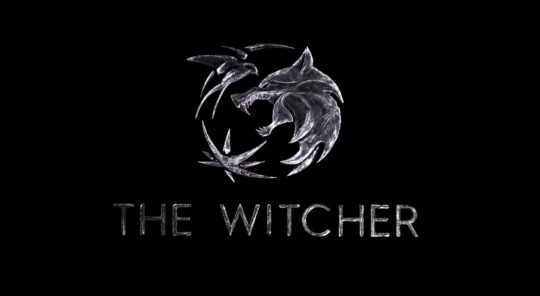
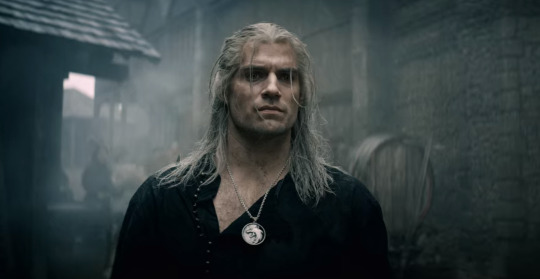



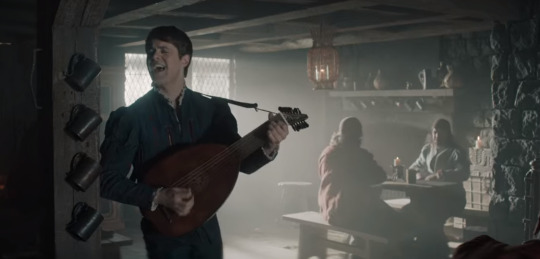

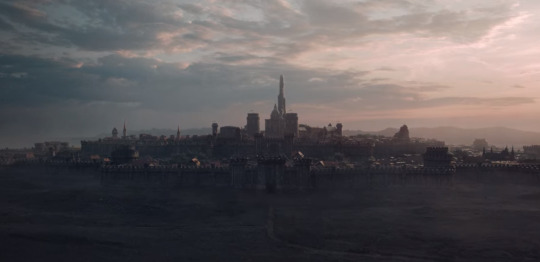


A penny for my Witchery thoughts
The Witcher Netflix series was released at the tail end of last month, giving Geralt of Rivia the interesting distinction of a literary character who’s now a well-known TV protagonist but just happened to achieve international fame through video games first. (Aye, there was a Polish film and show in 2001 and 2002 which called Geralt a “Hexer” instead of a “Witcher,” but they’re not exactly good, though perhaps worth a peek on YouTube for chuckles.)
Geralt’s adventures - both in the stories written by Andrzej Sapkowski and the games developed by CD Projekt Red - are close to my heart. I’ve spilled a fair amount of digital ink writing about the franchise, and my playthrough of the games and subsequent devouring of the books from 2014 to 2016 reignited my appreciation for fantasy and served as the impetus that got me reading more genre fiction and eventually delving into tabletop RPGs in 2017, leading to my current obsession with Dungeons & Dragons. I’m naturally protective of material that means a lot to me, so when the Netflix series was announced I viewed it with only subdued optimism. After all, with the possible exception of a certain HBO thing based on George R.R. Martin’s books (which now seems to be viewed worse in retrospect after the final season), fantasy doesn’t have a great track record on the small screen. I also wasn’t especially impressed when Henry Cavill was cast as Geralt, since I primarily know him from the recent Superman movies, which paint the guy in such a dour light and force him to constantly grimace like someone who’s just taken a dump only to discover that there’s no toilet paper in sight.
But now the show’s out in the wild, and after scanning some mixed reactions (not to mention one truly baffling “review” by two Entertainment Weekly twats who only watched the first episode) I cautiously consumed it with my girlfriend over Christmas break...and can happily report that it’s good. But, it’s also a show that expects its viewers to skip through some mental hoops as we bear witness to three intersecting story lines, all of which are taking place in different eras. Then you’ve got your standard variety of fantasy names, terms and themes, several of which might be tricky to grasp if you’ve never read the books or played the games. For instance, I don’t think they ever bothered to fully explain the “Conjunction of the Spheres” (the time when planets aligned and monsters and humans came to the world, uprooting the indigenous elves and dwarves) or the “Law of Surprise” (when a person’s fate is intertwined with something unexpected - usually an unborn child). I can also see how the show’s numerous mentions of the word “destiny” could seem like wacky dialogue to viewers unaware of the fact that Sapkowski’s realm really does have a strong undercurrent of inescapable fate running through its veins.
Unique structure and terminology aside, the first episode was more of a slow burn than I’d imagined. It starts with an awesome sequence of Geralt fighting a Kikimora, but then transitions into a fairly serious interpretation of “Lesser Evil” from the first short story collection, The Last Wish. The episode then cuts into the exodus of Ciri from the kingdom of Cintra, an event mostly described in flashback in the second short story anthology, Sword of Destiny. The scenes of death and destruction as Ciri flees her burning kingdom are fairly meandering, as are the interspersed interactions between Geralt and Renfri, a woman with seven loyal followers who was supposed to be a grittier version of Snow White in the books. There are some great fights near the end, but as I watched, I couldn’t help but think that I probably would’ve made the opener speedier and a bit pulpier, especially since the tone of these early Witcher tales was more “tongue in cheek fairy tale deconstruction” than plodding epic fantasy.
The second episode also took its time, though the decision to detail the plight of Yennefer the sorceress before she uses magic to change her hunchback form into something that she sees as more conventionally attractive is a good one, since this was once again only flashback material in the novels. But the cream of the hour was certainly Jaskier the bard, who’s going by his moniker in the books rather than the “Dandelion” translation that the games used. He’s played by actor Joey Batey with a perfect blend of magnificent bastard bravado, surpassing his portrayal in the games with a larger than life theme song that’s now something of a cult phenomenon, and his characterization made me feel like the show knew what it was doing at the end of the day.
Episode three is where things truly came together for me, since we barrel straight into the Geralt versus Striga battle from Andrzej Sapkowski’s first Witcher short story. It’s a full-on horror interpretation (which I liked but my girl found too spooky), and also full-on fan service for someone like me who still watches the intro cinematic to The Witcher 1 on occasion. And in later episodes, as my head began getting used to the nuances of the three character timeline, the show seemed to find its footing with this delicate blend of fan service, pulp and seriousness. By the time episode 8 rolled around and the character arcs of Geralt, Ciri and Yennefer came full circle with the Battle of Sodden Hill - yet another event that Sapkowski mostly wrote in flashback - I found myself wishing that season two would arrive sooner than 2021, and my girlfriend felt similarly. I also realized why the showrunners decided on the unorthodox timeline - this is a series that’ll probably excel on rewatches, particularly if you already have an idea of what to look out for.
Series producer Lauren S. Hissrich (who’s quite a joy to follow on Twitter) has mentioned in interviews that this is a show that expects a tad of patience and effort from viewers, but will give a lot in exchange. I’m inclined to agree, and while this depiction of Sapkowski’s lore has some initial roughness around the edges, it ultimately reminds me of how The Witcher 1 was janky even upon its 2007 release but exhibited a unique magic to anyone who stuck with it for more than a handful of hours. Many professional reviewers tend to avoid giving fantasy shows patience and effort (Game of Thrones is an anomaly), which may explain some of the negative reviews. But The Witcher seems to have found a strong-as-nails following from audiences, who made it one of Netflix’s top efforts of 2019, and even friggin’ Anne Rice liked it. (Geralt of Rivia now possesses the other interesting distinction of being a literary character/TV protagonist/video game hero who’s been mentioned in the same breath as Lestat the vampire.)
Speaking of Geralt, I owe Henry Cavill applause. I didn’t think much of his casting, but he pulled through in the end, delivering a silver-haired hero that’s clearly influenced by the games - particularly in the voice and the occasional spell slinging - but still very much his own take, with nary a “where’s the toilet paper” grimace in sight. Audiences can now take their pick between an iconic video game interpretation of the White Wolf and a likely-soon-to-be-iconic TV version, which is a rare choice to have in fandom, especially for a franchise that was once little known outside of Poland. Toss a coin to your Witcher, indeed.
7 notes
·
View notes
Text
Youthful Dystopia of Narutaru
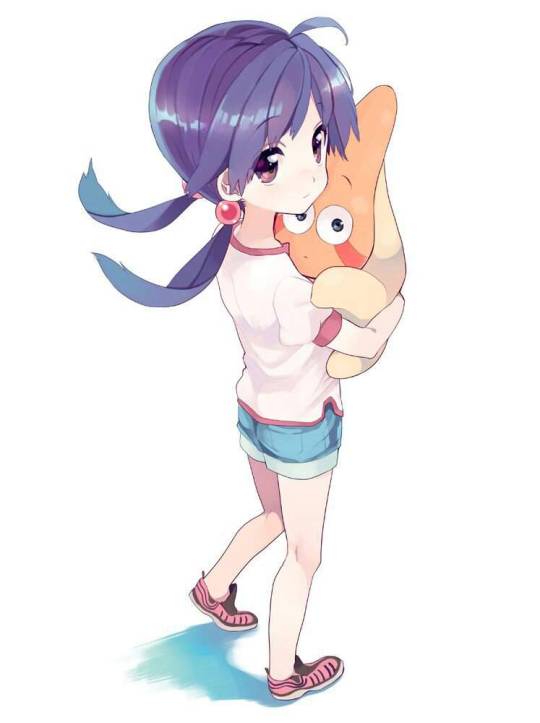
Narutaru was beneficial enough to have been made in an era where deconstruction series was gaining traction. If it were to made now, it'd probably be labeled as edgy without any mention of the actual quality of the story. Notably, the genre being deconstructing is the Mon( Digimon, pokemon, etc) genre. Unlike magical girl and mecha shows of today, Mon anime are still generally fluffy and childish so a darker take on the genre was definitely in order.
To give a little backdrop on the creator Mohiro Kitoh, he's pretty much a nihilist that rivals gen urubuchi in cruelty. His other works include a giant robot that steals the life force of children to destroy the multiverse and a psychic teen whom mass murders anyone who drives irresponsibly. He's that type of guy.
The main appeal of the story comes from the interactions between the children and their shadow dragons, rather than actual plot progression. Shadow dragons are mysterious creatures who bond to the characters with a psychic link, sharing their pain and inner thoughts. The names of the shadow dragons are often reflective of their user's psychology. For example, Norio's dragon is Vagina dentata representing his feminine appearance and inability to become intimate with the man he loves.
Our first real look into the world of Narutaru comes in the form of Tomonori Komori. The first few chapters spend time lolly gaging and establishing a vaguely foreboding mood, but, Komori establishes how this world operates. He a textbook level sociopath. A charming young boy who is revered by those in his neighborhood. All that charm is simply a facade he puts on to hide his true sinister views. He wants a Darwinistic world where all of the educated and well to do members of society are killed off, leaving the world in a survival of the fittest state. " Those who are weak and can't fend for themselves deserve to die," he says despite having a sick mother to take care of. He's ironically killed off by hoshimaru, one of the weaker dragons.
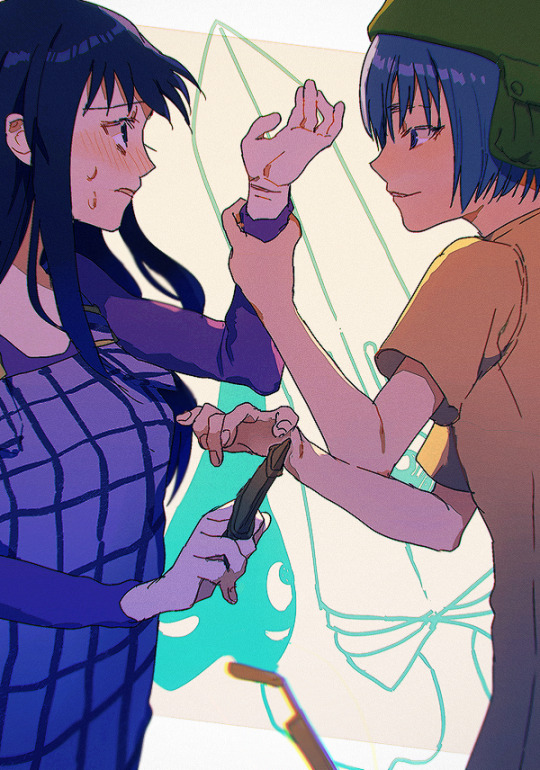
Komori is far from the only disturbed child in the series. The children have few qualms with murder and treat it casually. What sets this mon series from those of the same genre is that it treats its children character like actual humans. They aren't saints who only use their abilities for good. They're selfish and use these dragons to suit their own needs. It seems that being psychologically damaged is a requirement for having a dragon. Even upbeat Shiina has her hang-ups about her identity. This theory of trauma giving birth to shadow dragons is more or less confirmed with Hiroko.
She's a shy girl who's constant physical and emotional abuse from her bullies and parents allow her to awaken Oni. Her parents are representative of a common problem in Asian society. They only value their daughter for her academic status and chide her for being anything less than perfect. Her bullies torment her for being too smart and standing out during class. Both parties have opposite reasons for hating Hiroko, but, they both wish to strip away her individuality and turn her into a submissive slave of society. Awakening her shadow dragon allows Hiroko to finally get revenge on her tormentors, even if it means becoming a serial killer in the process.
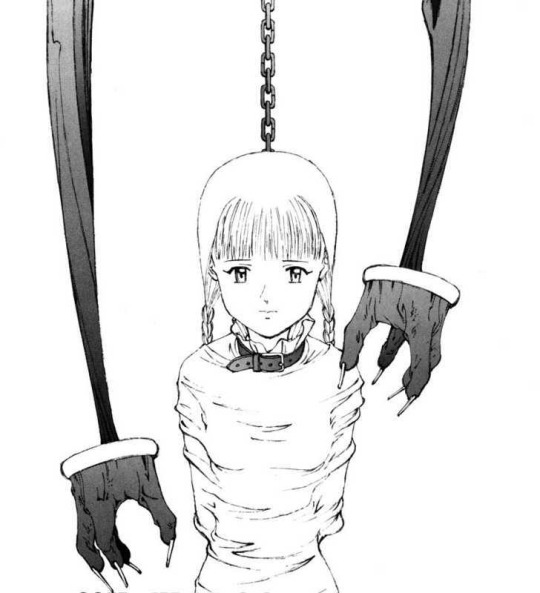
The manga is definitely a character-driven tale that dwells deep into the psyche of highly disturbed children. You have Akira who has depression and suicidal tendencies, Aki Honda who raped a girl with a test tube and the girl in question who snaps and goes in a killing spree. You could say that all of this bleakness is a bit too much but honestly, it felt refreshing. Mon series are generally really cheesy with bland one-note characters and a story that only exists to sell merchandise. Narutaru breaks the mold and presents characters who are multi-faceted and lifelike. Contrary to popular belief, children aren't always innocent and they can be just as cruel as adults.
One major gripe I have with the manga is the art. Mohiro sure can write but his art isn't winning any awards, that's for sure. Character designs are bland and minimalist. I admit the military paraphernalia is drawn in extensive detail and the dragons have cool designs but that's about it. Other manga artists can do sketchy manga art perfectly but Mohiro isn't one of them.
I also wasn't too particularly fond of the second half of the manga. It drops elements of deconstruction and character drama to replace it with military affairs. I understand the writer is a military nut but having chapters littered with walls of text of JSDF members reacting to the shadow dragon was just so tedious. It would've been better if the plot focused solely on the children and how their actions affect their environment. The second half of the manga lost what made Narutaru so special. It started as a character study of how immature kids react to newfound power only for the story to get Monopolized by adults. some characters like Mamiko Kuri, Norio Koga, and sudo desperately needed more screentime and character development. Mamiko is the worst offender as she only exists to be overtly cryptic until the final volumes.
I highly recommend anyone curious to please read the manga. It's ultimately a story of children thrown into an adult world of violence with little room to grow up. It's a thought-provoking social commentary on the nature of humans and how far their cruelty can go. There's an anime adaptation that isn't as good but is still a fun watch. Even if it's unlikely I'd to see the anime get a remake with a bigger budget and completely adapt the manga. If it did get a remake, here's whom I'd want to work on it:
Studio Mappa/ Geno studio- They seem more willing than other studios to work on nontraditional anime. They also tend to have high production values, something the Narutaru anime desperately needed. Producer twin engine would probably need to be involved
Sadyuki Murai(scriptwriter)- His work on boogiepop Phantom and Juuni Taisen has shown he excels at character drama and psychological thrillers. His style would work perfectly with the narrative and maybe even give the side characters some much-needed development. Taku Kishimoto would be my second choice
Takahiro Kishida( Character designer)- He has a sketchy and rough art style that can perfectly encapsulate the feel of the manga. I'm sure he'd improve on the demure character designs and make them more dynamite.
Takahiro Omari( Director)- He directed Durarara and Baccano which tells me he knows how to work with an ensemble cast. He also directed Hell girl, which had heavy social commentary poised at Japanese society, something Kitoh would love.
Yugo Kanno(Composer)- This guy knows how to how to Composer dark and suspenseful tracks that can amplify the intensity of the manga.
Be sure to check out these two other blogs that went far more in-depth than I ever could.
https://hanagasaitayo.wordpress.com/2019/08/05/analysis-narutaru-mukuro-naru-hoshi-tama-taru-ko/
https://manymanytoes.wordpress.com/2018/10/17/narutaru-shadow-star/
6 notes
·
View notes
Note
I need your guidance senpai 😋 What anime series should I watch with the Boy next? We just got through HunterXHunter and I endured but then was endeared. We also watched Monthly Girls Nozaki-kun. I have gotten a lot better at taking in anime that isn’t Cowboy BeBop, the Grail War series, or Gurran Laggan over the years but I still have my limits lol Any recs?
Okay, so I’d really need to know more about your individual taste to make proper recs, but let’s go with general stuff I love. I’ll note where it’s legally streaming (Note: I think some of the stuff on Funimation’s site can be streamed for free, but I’m not sure which of these that applies to). Warning: This is gonna get long because I couldn’t help myself
- Fullmetal Alchemist: Brotherhood - You can’t go wrong with this one, you really can’t. This is probably the best show I’ve ever seen period, and I’d rec it regardless of taste, honestly. The setting is amazing, the plot is flawlessly executed, the characters are fantastic and fleshed out, and the ships are adorable. Bonus: it avoids the classic shounen problem of being bad at female characters; the FMA series in general has such fantastic female characters. The first 13 episodes can fly by a bit fast with less than fantastic pacing because they were already done back in the original 2003 Fullmetal Alchemist, but I promise it’s worth it. In fact, here’s a whole video about why you should watch it. It’s streaming on Netflix, Amazon, and, I think, Hulu, so it’s easy to watch. If you just watch one of these shows, it should be this one
- Revolutionary Girl Utena - SO GOOD. This show is weird, but in the best way, and not to the point that it’s difficult to understand. If you like symbolism and deconstruction of fairy tales, this is a good show for you. Also, highly complex characters! Note: The dub for this one is…less than good, so probably watch it subbed. It’s on Amazon, but you have to pay for it.
- Mawaru Penguindrum - Yeah, I know, more Ikuhara anime, but I love it so. Again, a weird show, but understandable. Good characters, good ships, and a very interesting premise that’s well-executed. Streaming on HiDive.
- Code Geass - Do you like giant robots, political intrigue, and complex characters? Then Code Geass might be the show for you! This is also the show with my all-time favorite character and ship. The main character, Lelouch, is also cut from similar cloth as Jughead in his darker moments, so that’s fun. Now streaming on Netflix with a great dub!
- Durarara!! and its continuation Durarara!! x2 - Teen gangs, headless riders, the mafia, a serial killer, a mastermind, a magic sword, this series has it all! And it’s so good! Seriously, the character work is great, and it’s not afraid to spend episodes on one character if that’s the best way to pace the plot. And, oh man, is the pacing great. The plot too, honestly. I highly recommend it, and, if you watch it, you can finally understand my “Riverdale season 2 is just live action Durarara!! but not written as well!” ravings. Also streaming on Netflix with a great dub.
- Baccano! - An excellent period piece set in the late 1920s that’s full of the mafia and magic and excitement. It follows three sets of characters and storylines at once, and they all come to a head in the final episode, although there are also some bonus episodes. The characters here are phenomenal, and the opening is killer. I highly recommend the dub because they do a great job with everyone’s accents. Inexplicably, I don’t think it’s streaming anywhere
- The Melancholy of Haruhi Suzumiya - This is more of a weeb-y show, as it’s set in a Japanese high school and talks about anime culture, but it’s also so good and one of my favorite shows, so I have to recommend it. It follows a girl with reality-warping, god-like powers that she doesn’t know about; the people who are studying her and trying to keep those powers a secret from her and others; and this regular guy who befriends her. There are a number of orders to watch this show in, but it’s generally recommended to do broadcast order rather than chronological order. Again, a phenomenal dub. The first few episodes (sub only, I think) are streaming on Funimation’s site for free (chronological order).
- His and Her Circumstances - This is just a fantastic romance anime, old though it may be. You can watch it on Amazon with a Starz subscription.
- Neon Genesis Evangelion - A seminal anime, and one that holds up in my opinion. Giant robots, fully explored three-dimensional characters, and some weird shit, Eva is just a damn good show. Coming to Neflix some time this summer!
- Black Lagoon - Damn, is this show dark but good! Seriously great characters and a fantastic dub. Streaming on Funimation’s site.
- Ghost in the Shell: Stand Alone Complex - A great bit of sci-fi. You can buy it on Amazon, but stick to season 1; season 2 (Second Gig) is a whole different beast.
- Hyouka - A cute series about a group of kids who solve mysteries. Really, it’s just precious. I think it’s only streaming on Funimation’s website, though.
- Kara no Kyokai (aka The Garden of Sinners) - Ok, so this is a series of movies, not a tv show, but it’s pretty good! And it’s from the same universe as all the Holy Grail/Fate stuff, so if you liked those, you might like this. Streaming on Crunchyroll.
- Ouran High School Host Club - Kiss kiss fall in love! This is a very funny reverse harem show that does not take itself seriously. Streaming on Netflix, Hulu, and Funimation’s website.
- Princess Tutu - A truly fantastic magical girl show that’s a mix of fairy tales, ballet, and awesome meta stuff. Streaming on Amazon Prime and Hulu (dub only on both sites, weirdly enough).
- Puella Magi Madoka Magica - A dark take on the magical girl genre, but pretty good. It’s streaming on Netflix, I think.
- Steins;Gate - A really great sci-fi show. Good characters, good plot, a damn good ship. Streaming sub only on Hulu, sub and dub on Funimation’s site and Crackle, and you can buy it on Amazon.
- School Rumble - Such a good comedy show in a high school setting. Streaming on Funimation’s site in sub and dub, sub only on Hulu, and you can buy it on Amazon.
- Tsurezure Children - An adorable series about a bunch of couples, told in various snippets of their lives. Seriously, it’s got so many flavors of ships, there’s bound to be one you’ll like. Streaming subbed on Crunchyroll and both subbed and dubbed on Funimation’s site.
- The Vision of Escaflowne - So good! Steampunk mecha with a bit a magical girl stuff set on another world. And Van/Hitomi is such a good ship. Streaming on Funimation’s site.
- Vatican Miracle Examiner (but just the first four episodes) - This is the weirdest fucking thing I’ve ever seen with the highest WTF quotient. I have no words for it, but damn is it funny, although not on purpose. Streaming on Amazon with Amazon Prime.
And here are two movies:
- your name. - So good! Such a great romance, and it’s so beautiful too! I think you can rent it on Amazon (I wouldn’t know because I bought it.)
- The Girl Who Leapt Through Time - Fantastic sci-fi/romance movie that’s not hardcore sci-fi. It always gives me so many emotions. Again, I think you can rent it on Amazon, but I’m not sure because I bought it.
#anime#a true janian reply#asks#god I hope read mores work on mobile#not tagging all these anime because there are just too many
7 notes
·
View notes
Text
A Lila Rant
Cross-posted from my Dreamwidth account because if I’m making a fandom side blog anyway, I may as well go all out.
I don't like Lila Rossi. This shouldn't be surprising; Miraculous Ladybug canon hasn't gone out of its way to give her any redeeming qualities - quite the opposite, in fact. She's a practiced liar, manipulator, even a gaslighter. It's so, so easy to hate her. And I absolutely resent that. Like many shows of similar Magical Girl sub-genre (Main Character (almost always a girl) is granted magical transformation powers from a small talking animal thing, uses them to heal ordinary citizens who have been transformed by the bad guys, who themselves are after some MacGuffin), pretty much all of the bad guys are given some sympathetic characteristics. Sure, they may not make up for the evil they do, and redemption may never be in the cards, but they're usually there. Gabriel has them; he's apparently doing this Hawkmoth gig for "love" or whatever, and he does care about Adrien when he bothers to notice his son is an actual person. Nathalie has them; she's also shown to care for Adrien, and probably pays more attention to him (and possibly even cares about him more) than his actual father. Not to mention loyalty; if you've got a villain loyalty kink, she's right up your alley. It's a good formula! Just about every other show of this sub-genre I can think of does something similar; even if the big bad themself isn't even a little bit sympathetic, their underlings usually are, or at least we get some sort of implication that they're just doing the best they know how. It makes the conflict that much more poignant, and I've seen it over and over again, more times than I can count: Sailor Moon, Wedding Peach, Tokyo Mew-Mew, Steven Universe (trust me, it counts), the entire Pretty Cure franchise, and probably dozens more I've never heard of. (Leaving aside subversions like Madoka and deconstructions like Cardcaptor Sakura for the moment.) Lila doesn't get that. Not even one inkling of it. And it was one thing when it seemed like she was going to be a one-off character that we'd never see again, but she's been back twice now, with still nothing to make her sympathetic; if anything, TPTB have ramped up her asshole traits. I already had a problem with this from a storytelling perspective, especially with this sub-genre running so strong on themes of understanding and compassion. I start to itch when a show like this starts telling me I should hate a character "just because", not even trying a little to show us why they're being so terrible. (And don't think I haven't noticed she's our darkest-skinned villain/romantic rival.) So no, I don't like Lila. The fact that the show hasn't even seemed to consider giving me a reason to, though? I outright loathe. For all of that, I am fully prepared to find a way to like Lila out of spite.
2 notes
·
View notes
Text
Anime Ramble: Puella Magi Madoka Magica
Magical Girl anime have this tendency to provoke a binary reaction. Either you see Magical Girls on the promo material and want to watch the show, or else you don’t. So, I’d like to preface this bout of gushing-about-a-show-that-I-watched by saying that your initial reaction to seeing the below poster should be discarded and you should just watch this show.
No, really, I think it’s safe to say that if you have an initial gut reaction of “I’m not interested” then you are probably going to appreciate this show quite a bit, while those who are avid fans of the Magical Girl genre might actually end up being put off by their expectations. Not because of what this show is, but rather by what this show isn’t.
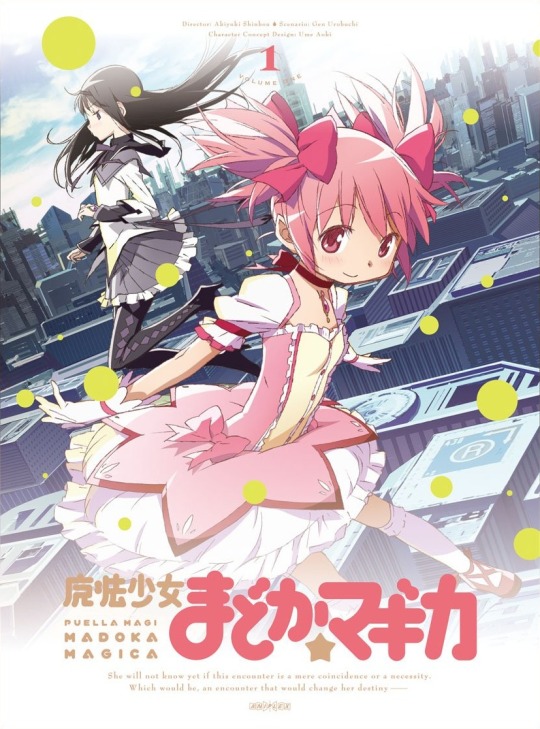
In the same way that everyone knows that Darth Vader is Luke’s father or that a certain noble from the North loses their head, there are some story twists which percolate into the general cultural consciousness due to sheer popularity and end up becoming common knowledge. Puella Magi Madoka Magica is a series which blew up to such popularity in 2011 that you’ve probably seen the characters somewhere before even if you don’t watch a lot of anime. You’ve probably also seen this little guy
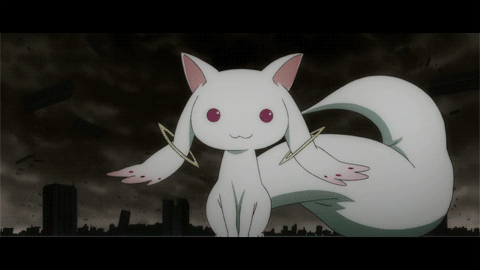
around, often in the context of memes in which either 1) he tries to get people to make a contract or 2) people inflict violence on him and his smug little face never changes.
So while I want to say that Madoka Magica will surprise you when it pulls a left turn into darkness and despair, not only have I just ruined that specific surprise for you but the internet at large more than likely already did that job for me. Not only was this show popular, which translates into a more widespread awareness of its overall tone and some of its twists, other more recent shows have pulled a similar deception. Only last year did we have Made in Abyss, which I haven’t seen yet but which I understand exists for the sole purpose of having cute kids set off on an exciting adventure only to be eaten alive by Uncle Lovecraft’s Happy Fun Time Cave. If you’ve been around the anime niches of the internet or, like me, have a former otaku for a sister then you know from the onset that this show is far more than meets the eye based on reputation alone.
To start with, take a good look at the promotional material for this show, such as the trailer. The production team did their damndest to ensure that from the outside the show would look like the most derivative Magical Girl show ever made, up to and including keeping Gen Urobuchi’s involvement in the production a secret. Gen Urobuchi (aka ButchGen aka The Urobutcher) is a writer who is known for being a bit of a downer, having been involved in projects such as Fate/Zero and Psycho-Pass. He’s very outspoken when it comes to his distaste for heroic archetypes played straight and his tendency to drag his characters through the mud, so his presence as the show’s writer was what you might call a dead giveaway.
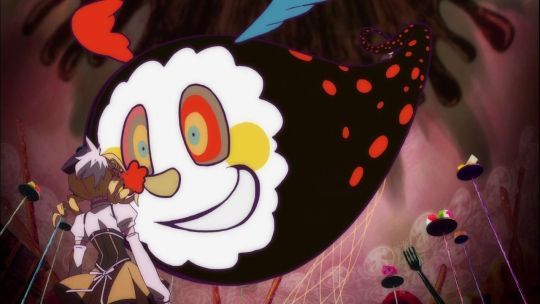
So what happens when a writer like this tackles a genre known for being all about hope, courage, and the power of friendship and love? There are many people who argue that Madoka Magica deconstructs the Magical Girl anime (Magical Girl Warrior subgenre) as codified by Sailor Moon or Cardcaptor Sakura. Some even say it’s the Neon Genesis Evangelion of the Magical Girl genre. As NGE showed us just how psychologically messed up a Giant Robot show would be if populated by actual human beings, Madoka Magica is about how having child combatants fight monsters in an urban environment with no support network does not make a well-adjusted childhood.
The effects of this kind of pressure and isolation on a bunch of adolescents is one of the elements of Madoka Magica, but fighting monsters with magic isn’t the only thing that makes a Magical Girl story. They’re traditionally as much coming-of-age stories as they are stories about definitions of femininity and self-determination. Madoka Magica has the trappings of a MG show: an all-loving protagonist, a dark and aloof rival, a tomboy friend, a non-magical friend, transformation sequences, fighting against the manifestations of dark emotions, and a cute(?) mascot. It’s talking the talk, but at its heart this is not a story about Magical Girl stories in the same way NGE was about Giant Robot anime (that’s what Revolutionary Girl Utena is for). It certainly plays with many common elements of the Magical Girl anime, but at its heart Madoka Magica is about hope, despair, idealism and selfishness. It’s a psychological drama and grand tragedy. It just happens to be wearing a Magical Girl outfit.
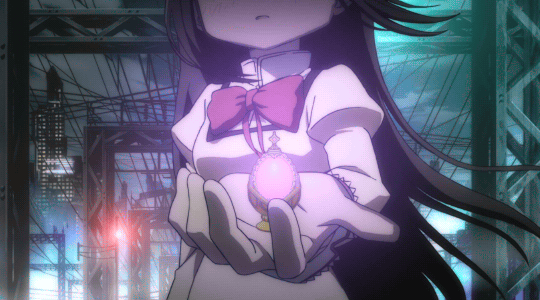
Which is not to say that one is superior to the other, of course. Just set your expectations accordingly if you’re already a Magical Girl fan. If you’re not, well, you might be in luck...
Twelve episodes isn’t a whole lot of time and Madoka Magica does a lot in those twelve episodes, so while I’m willing to spoil the tone of the story discussing the plot itself is a bit trickier. Kaname Madoka is our pink-haired milquetoast protagonist who doesn’t think she’s anything special, and just wants to make friends with everyone. We’re introduced to her via dream sequence, where she witnesses a dark-haired girl fighting against an enemy ravaging the city. A strange white bunny-cat creature asks Madoka to make a contract and become a magical girl, and then she wakes up. It turns out that when not dreaming of plot foreshadowing, Madoka has a pretty good life; a cool mom, a loving dad and good friends. But today it turns out the new transfer student at school - Akemi Homura - is the same girl from her dream. Homura warns Madoka to never change, to stay exactly as she is if she doesn’t want to lose her friends, family, everything she has ever loved. We wouldn’t have much of a story if Madoka never changed, though, so it isn’t long before the bunny-cat creature from the dream crashes into the narrative as well and introduces himself as Kyubey.
Kyubey offers Madoka and her best friend Sayaka an opportunity: make a contract with him and he will grant a single wish, any wish. In return the wisher receives magic powers and must now fight Witches. Not the pointed-hat, broomstick-riding variety, but rather strange, eldritch beings which bring about despair, death and suicide among ordinary humans. It sounds like a good deal: get magic powers and a superhero job on top of a wish? Who wouldn’t want that? But the catch is that this job is for life. If you’re spending all your free time saving the world, you’re not spending time with friends, getting a boyfriend, even just having fun. Is your wish worth dedicating your life to?
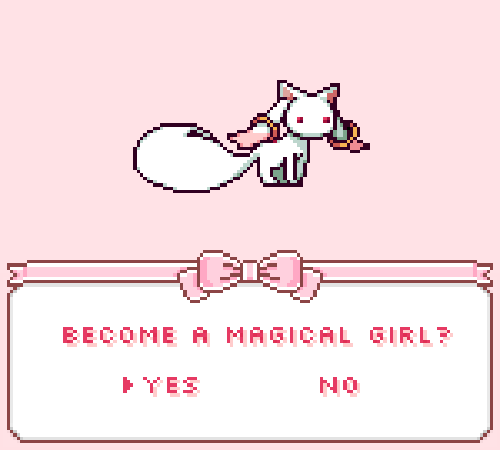
This story has a lot to say about good intentions. Our characters are living pretty good lives, so is there really anything worth giving that up for? Perhaps the wish is better spent on someone who needs it. But, remember, make a wish and you’re essentially fighting on behalf of that wish for the rest of your life. Is what you wish for really what you want, or do you really want some other outcome? Say you wish for a dying friend to heal; do you actually want them healed, or do you really want their eternal gratitude? All the characters in this story have the best intentions, but there’s a gap between intention and execution. If you don’t know what you really want, all the idealism in the world isn’t going to save you from your own regrets.
The phrase “I just wanted what was best” is a damning one. It's key to remember that the characters are adolescent girls, with all the contradictory vulnerability and immovable self-righteousness which comes at that age. It's the age at which ideas of how the world should be collide rudely with how the world actually is, and a person can either deal with it by changing themselves and developing coping mechanisms - healthy or unhealthy - or else break themselves on the impossibility of making their ideals fit with the system. Then again, it might be possible to change the system itself... but that’s a long shot.
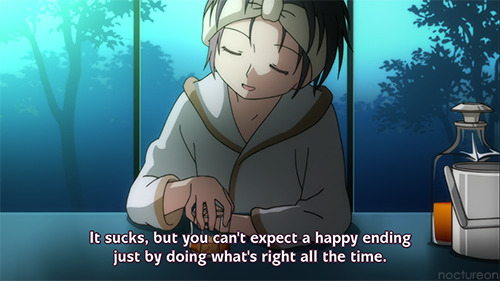
At one point Madoka’s mother gives her a piece of advice: if you see your friend hurting themselves while trying to to the right thing, maybe the best thing to do is to do the wrong thing for them to break them out of their self-destructive cycle. After all, they’re all still young, they’re at an age where recovering from mistakes is supposed to be easier than when you’re an adult. But this advice happens to come at the wrong time, because these kids are stuck in a situation where a mistake can cost one’s life.
As it happens the relationship between Madoka and her mother is one of the highlights in the series. Mom is a career-chasing businesswoman who still takes the time to talk to her daughter, and though she may not be working her dream job she’s living life on her own terms and is obviously an inspiration for Madoka. Her relationship with Madoka plays a surprisingly important role in the story, which is a refreshing change since parents are usually a non-factor or killed off for backstory purposes. The rest of the characters fit much more neatly into standard archetypes. Madoka herself has a big heart and wants everyone to get along, while her much more outgoing friend Sayaka is the go-getter who will take on problems head-first. We’re introduced early on to a much more experienced magical girl named Tomoe Mami, and she ends up taking a sort of big sister mentor role. All three of these girls believe in helping and protecting others, though each has their own take on the best way of doing so. Homura on the other hand is the dark and mysterious loner who for some reason is fixated on Madoka. We feel like she’s an antagonist, but another character who enters the story later turns out to be even more hostile. The red to Sayaka’s idealistic blue, this new magical girl feels like the antithesis to the magical girl ideals we’re used to: selfish, violent and hedonistic.

As elemental as each of these characters is, by the end of the story each one ends up in a very different place than where they started - or else had their starting position shifted altogether. Not everyone is what they seem. Homura’s backstory in particular hits like a truck when it finally arrives and ends up being key to the resolution of the plot. That said, Madoka Magica is not a story that goes in for particularly complex characterization. Its twelve-episode runtime forces a fast buildup and resolution. Friendships and other relationships don’t really have the time to mature on screen, and a lot has to be left to subtext or inference. Each character’s arc takes them where they need to go for the story to progress, and it’s not necessarily a bad thing. Some of these character arcs are desperately tragic tales of misunderstandings and misplaced idealism, but in the end these are still archetypal characters, though perhaps not the archetype you expected. Ultimately, they serve more as conflicting views on the show’s central themes than as the driving force of the story itself. The short length of the show is a weakness, keeping the story from being able to develop the cast as much as would have been ideal.
On the other hand, the show’s compact twelve episode structure is also its strength, and the ‘realism’ of the characters is much less important than what each one represents in the story as a whole. It’s hard to say whether or not Puella Magi Madoka Magica would’ve been able to hit as hard as it does if was any longer. This is a story very much focused on building its plot and keeping a steady pace, layering the tone and atmosphere and absolutely killing it in the aesthetics department. It is a straightforward story when all’s said and done, but it is densely constructed and cohesive. Every element of the show works as part of a whole and builds on the others, the visuals, the cinematography, the music, and even in the way the plot is structured. It’s got no time for cheap fanservice, it makes full use of every moment, and it only gets better on repeat viewings. This isn’t a show that supports casual viewing, and it expects you to be paying as much attention to the way a character is being framed in a shot as to what’s being said (or not said) in the dialogue. This is ultimately a simple story, yes, but it’s dense and constantly being told on multiple layers.
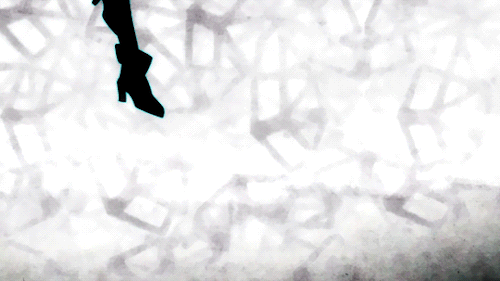
Puella Magi Madoka Magica’s ace in the hole is its mixed-media action scenes. Whenever our characters are fighting a Witch the show pulls a Terry Gilliam and starts doing very strange things with the animation. The medium of the art itself changes, with our cel-animated characters fighting against and among stop-motion objects. Paper cutouts and cotton balls. Lace and embroidery. The effect is unnerving and psychedelic and sometimes overwhelming. It can be difficult to follow the action whenever this happens, but then again these are supposed to be things that aren’t quite in sync with reality, beings which practically run on magic. The fact that these unreal things and spaces are being represented with real-world objects intruding into the animation is a clever touch. It’s an effect that I’ve rarely seen used in anime, and never in an action-heavy context.
(Author’s addendum: I’m aware that director Akiyuki Shinbo’s thing is this mix of visual styles. I do think its usage in Madoka Magica is still notable, if only because it works really well here.)
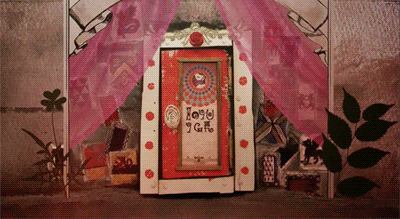
Even when it’s being more conventional Madoka Magica is visually accomplished. Even though the wide-faced character designs threw me for a loop at first (so wide!) they did eventually grow on me. There’s something about how the eyes look almost penciled-in which keeps them from straying into overly-cutesy territory. The cinematography is likewise superb. Strong, stylized color work drives home tone and emotion. The setting often dwarfs people within vast, empty cityscapes, the background itself being a reflection of the characters’ emotions and the series’ tone. In dialogue-heavy scenes we get momentary flashes of expression and action illustrating what’s happening inside a character’s head, and the framing of characters in a scene tells you everything you need to know about their relationships without saying a word. Whatever else you might think about Madoka Magica, it looks beautiful and tells much of its story visually through color, framing, light and shadow.
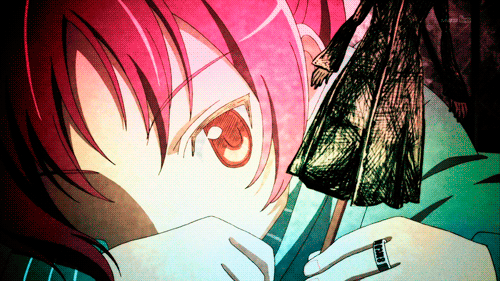
Going further than that, the structure of the plot is beautifully constructed as well. You could divide the story into four arcs of three episodes, each following the development of a different character, or else three arcs of four episodes, each one ending with a new point of no return. The third and tenth episodes mirror each other as well, each one shifting the stakes and giving us new context for everything which came before. The reason why this show shines so much brighter on a rewatch is because things that seemed like inconsequential melodrama or lazy writing the first time around take on a whole new meaning once backstory and motivation are revealed. It’s for this reason that I’m not terribly concerned about revealing Puella Magi Madoka Magica’s swerve into darkness; high stakes and dark subject matter are not the only secrets that this series has got up its sleeve. By the end of the story we’re not only dissecting the intentions and desires of our characters, we’re asking hard questions about why this story had to happen the way it did at all, questions which lead to what might be one of the most satisfying conclusions to an anime I’ve ever seen.
That is perhaps what makes Madoka Magica the show that it is. Though the ultimate shape of the story is straightforward, we journey there through layers of twisting color and twisting plot. Though we have our perspective on the events of the story constantly re-contextualized about once an episode, it’s always building to a conclusion that both feels inevitable and yet less likely the closer we get. And when the end does arrive, it takes everything that has happened so far, every mistake, every hope, every good intention gone wrong and it makes them matter. Though the ending is theoretically open ended, it’s entirely self-contained. It has introduced us to a new world, revealed the lies underlying this world, and has shown us what these characters do about it. It raises questions, and in the end tells us what it’s been saying all along. Few shows, anime or otherwise, use such a cohesive combination of visuals, narrative, and music to deliver a message. Beautiful to look at, beautiful to listen to, and beautiful in how it unfolds.
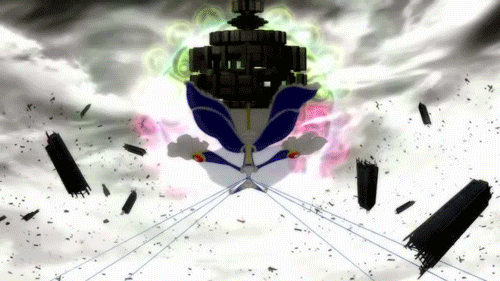
As it turned out, a sequel movie was made anyways. I refuse to provide any comprehensive thoughts on Puella Magi Madoka Magica: Rebellion for now, because doing so runs the risk of being flayed alive by the fandom no matter your take. Suffice it to say that it’s incredibly self-indulgent, visually stunning, and it will make you regret wishing that the ending of the original series could have been happier.
Puella Magi Madoka Magica is beautiful, and you really should watch it.
- Taihus, the wish-granting @raincoastgamer
(And I somehow manage to write all of this without actually discussing the soundtrack. The thing is, I don’t really know how to critique a soundtrack. It’s good, its use of leitmotifs is masterful and actually brought me to tears in episode 8, Magia represents the show’s true face behind the pleasant pink facade, and I’ve still got Sis Puella Magica stuck in my head.)
#puella magi madoka magica#pmmm#madoka magica#review#ramble#anime#anime ramble#anime article#anime review#I wrote a thing#gen urobuchi#akiyuki shinbo#studio shaft#aniplex#ume aoki#yuki kajiura
80 notes
·
View notes
Text
This or That Writer Edition
I got tagged in this by @writeouswriter, tagging @asomeoneperson and anyone else who wants to do this. Wow, tag games are kinda fun, they really make me think.
1. historical or futuristic
Though my first love was scifi, I definitely find it more fun to write historical based stuff than fururistic. It’s still like...fantastical history rather than period dramas, but history nonetheless, right? Honestly, most stuff I write is vaguely present or recent history.
2. the opening or closing chapter
Well for all the unfiinshed works I have, I have a lot more closing chapters than opening written out. It’s easier for me to decide where a story is going to go, to visualise an ending, than to figure out where it’s starting from.
3. light + fluffy or dark + gritty
This is probably more of a balance - my best fanfic on AO3 is full crack - but I tend to fall on the side of dark and gritty. It’s not a story by me if there isn’t one tortured character lurking around in the cast, and there’s usually a lot more than one. I also enjoy deconstructing tropes quite a lot, which can get quite dark (looking at you, Magical Girls and Pantheon Champions).
4. animal companion or found family
Found family all the way. Loyal animals are fun and all, but the tension of broken people coming together and the pure softness of them finding family in each other is unbeatable.
5. horror or romance
Eh I don’t really do either of these, but I’d have to lean more towards horror. I can write some horrifying things, certainly more than I write romantic things.
6. hard or soft magic system
I actually prefer hard most of the time, at least to the extent that I know the limitations and what specifically can be done, even if the characters don’t.
7. standalone or series
Yeah, a fair amount of worlds just suck me in until I end up with side-stories and sequels and prequels...a couple were always planned to be trilogies though. They thematically work that way.
8. one project at a time or always juggling 2+
I literally bounce between projects like pinballs.
9. one award winner or one bestseller
Frankly, I don’t mind. I’m not even sure if I’d want either. I want my writing to interest people and draw them in and make them think, and I don’t care much beyond that.
10. fantasy or sci-fi
Well, I write a lot of fantasy and some scifi, but frankly I also write a fair amount of science fantasy (yes, this is a real genre). I’ll frequently have more scientific things butting up against staight up magic and gods - things are more interesting that way!
11. character or setting description
Feel like I’ve finally got the hang of subtly describing characters, whereas places often still give me trouble when it comes to avoiding lengthy exposition.
12. first or final draft
My first and final drafts are usually written over each other, so... both? Neither?
13. literary or ‘commercial’ genre
Honestly, commercial. I’ve written some stuff that could probably be classed as ‘literary’ but writing and reading’s about fun for me. Making something consumable and a bit predictable doesn’t mean it can’t be interesting or thought-provoking.
14. love triangle in everything or no romantic arcs
No. Yuck. Well, no, I have written romances - they tend to just already be existing by the time the story starts or be more background. They’re definitiely not usually a part of the plot.
15. constant sandstorm or rainstorm
Oh come now, how can you make me choose? They both have very dramatic and cinematic uses, and I’ve definitely written both multiple times. The Everstorms in Torlas, Brooke’s place on Ultramarine Isle...
1 note
·
View note
Text
Ep6, Chapter 5 & 6 (Part 1)
So, yeah, the Steam version of Chiru’s out, but for the time being, I’m gonna stick to making my posts off of the original Witch Hunt/UmiTweak release, the main reason being that I’m already partway through Ep6. There’s also the voice acting, which I think adds a great deal to the story.
Once I get to Ep7, I’ll probably switch to the Steam release. Hopefully that doesn’t take too long, especially since I want to keep up with Rokkenjima’s Chiru Tea Parties alongside this, but... We’ll see, I guess!
Anyways. If I recall correctly, these chapters feature Erika wasting her time arguing with a 9-year-old and being even more dense than Battler used to be? Fun times inbound!
The chapter opens with Shannon talking about how she used to be “a bit of a klutz” “back then” - forgetting where she left something, or forgetting to lock a door/cabinet/whatever. It’s funny - despite how relatively insignificant this information is (especially since we’ve seen Shannon being a bit clumsy in earlier Eps), it’s good at strengthening the connection between Yasu in her story in Ep7 and what Shannon was like when she was younger.
that sentence was kind of a mess but i hope you understand what i mean
Battler asks her how she got over her forgetfulness, and Shannon explains that she got in the habit of taking notes about where she put things and such. Again, pretty minor, but it brings to mind Yasu tying a string around her keyring...
Erika interrupts, asking flat-out if she’s seen Beatrice or not. Shannon says, “I didn’t see her directly, but... umm... some very strange things did happen...”
The narrative mentions that she’s thinking of “a certain summer night,” and then jumps to the two Beatos wandering the mansion at night. “From Shannon’s perspective, it was a ghost story. From the witch’s perspective... it was just the story of a little summer’s night prank...”
Elder explains the concept of “anti-magic toxin” to Chick. She says something interesting here, and I’m not entirely sure how to parse it - “One thing we do have in our favour is the fact that our existence is still extremely weak. Because of that, the toxin does not affect us greatly.”
In magic terms, I think what she means is that it can’t cause the two of them as much pain as it’s shown to cause for, say, characters like the Stakes or Sakutarou in Ep4. In mundane terms... hmm. Maybe that, since the ghost stories about the witch haven’t really taken hold yet, people are less desperate to argue against them? I’m really not sure.
“[Chick] had thought that she wasn’t a witch because she couldn’t use magic, but apparently, she was still a witch nonetheless.”
Elder mentions that not only being seen, but “being heard or sensed can also result in contact with the toxin.” Basically, any cause for suspicion that “the witch’s actions” have a “human culprit” is damaging.
Chick wonders internally why she wasn’t burnt by Battler’s toxin. Meta gonna meta? The anti-magic toxin’s never really seemed to be “a thing” in the Meta-World - it’s more of a gameboard construct.
“Simply put, as we are now, we can only exist when humans aren’t around...”
Elder is awestruck at the idea of being able to appear openly in front of humans. “Is that what we will eventually become?”
Pretty reflective of how Yasu would’ve felt, I imagine. When she started with her little witch pranks, I doubt she could’ve imagined them growing to encompass the entire island the way they did.
“Hmmm, how inspiring. If that is our future, it means that all of our hard work will have been worth the effort.” okay that one hurts
And then Chick asks how those efforts relate to what they’re currently doing - unlocking windows behind the mansion’s servants, lol. Elder explains that the fact the window was unlocked even though “there’s no one in the hallway” is proof of their existence, and of their magic.
“Of course, it wasn’t just small pranks like opening a window. She could also smash windows and vases, or leave behind strange fires and mysterious scribbles.” YASU WHAT ARE YOU DOING
“One day, I will... no, we will become a single witch and control all of Rokkenjima... When that time comes, we will gain complete freedom and will be capable of stretching our wings as we please.”
And Chick realizes the reason she could appear in front of Battler so openly is because at this point, he fully believes in the witch’s existence and doesn’t have any anti-magic toxin to speak of. HOW THE TABLES HAVE TURNED
In Featherine’s study, meanwhile, Ange and Featherine discuss the Beatos’ logic. It basically comes down to the fact that they’ve - Yasu’s - created an atmosphere where anything strange happening on the island is blamed on the witch.
“The servants might have forgotten to lock [the window], or one of the family might have opened it after the servants had locked up and forgotten to shut it again, or maybe someone had played a prank. In the same way that none of those possibilities could be denied... it was also impossible to deny the possibility that a witch really had opened a window to enjoy the night breeze...”
“That’s one of the foundations of magic. Decorating... the process.”
Ange acknowledges that “good magic” really does exist. Featherine says, “The power to repel evil magic may be necessary for a child of man. However, it is the nature of love in the human world that it does not burn away and defile love-filled magic.”
Ange concludes that “Beatrice” isn’t a person’s name, but the name of a phenomenon - that anything strange that happens at night is blamed on the witch. “That all piles up until we reach 1986... This is the veil that the true culprit is hiding behind. And the person hiding behind it is, without a doubt, a human.”
Featherine contends that she can’t stick to that argument “to fight all the way through 1986,” and Ange doesn’t have a response. The narrative jumps back to the gameboard, where presumably Shannon’s just detailed the window being unlocked on that night.
...And Erika, being Erika, says that it was just because someone forgot to lock the window.
Shannon mentions that it happened many times over (which she’d know, of course), and Erika calls her an idiot. I really can’t stand her in this episode, I’m sorry...
Everyone else chimes in to support Shannon, but Erika turns to pointing the finger at the servants as a group. THE IRONY......
She concludes with, “Of course there’s no way Beatrice exists,” and “This delusion of a Golden Witch Beatrice [...] is completely impossible,” which angers Maria. here we fuckin go
Maria states that she’s met Beato (which she has), and that Beato shows her magic all the time. Erika asks her to explain in detail. Seriously, this girl...
The other cousins try calming the situation down, but Erika throws out all pretenses of being polite (again) to challenge Maria. Meta breaks in, and Maria appears in her witch outfit.
Erika invites her to reproduce the magic, and Dlanor appears to tell her, “This battle is not worth FIGHTING.” AT LEAST ONE OF YOU HAS A GOOD HEAD ON YOUR SHOULDERS
At any rate, ridiculous red/blue truth battle ensues. I really don’t have a lot to say about this and formatting the text colours is a pain, so...
During it, though, Erika says, “All truths are nothing more than claims! So, I’ll make a claim separate from yours and smash right through yours!! That is the detective’s duty, and the time we shine the mooooost!!” I think this is a good line to use to reflect on why I don’t like Erika in this episode.
In Episode 5, she has very apparent narrative functions - she’s a detective like Battler is, but ultimately, she’s very much an antithesis of him. She’s a ruthless deconstruction of the mystery/detective fiction genre in general, and she’s a guide on “what not to do” to solve the mystery. She’s also, ultimately, the metaphorical kick in the pants Battler needs to really try solving Beato’s riddle properly, and a parody of the Mary Sue character, by way of literally being Bern’s self-insert. She fulfills all of these purposes quite well, while being an entertaining character at the same time.
In Ep6, though? True, she still functions as a deconstruction of the genre, and as an example of how ignoring the heart of the story leaves you unable to solve it, but... I feel like the former’s kinda old hat at this point, and the latter isn’t done particularly well? Ryukishi (and Battler, I suppose) kinda smack us over the head with that point in this episode, with Erika just shrugging off the love duel getting so much attention and Battler flat-out asking her what her problem is.
On top of that, we’ve got the contrast between her being an absolutely horrible person like she was in Ep5 with an attempt at humanizing her by giving her some sort of tragic backstory involving a cheating boyfriend (that doesn’t really make much sense for a 14-year-old girl, but I digress). I realize the two sides of her match with Umineko’s theme of contradictory options both being true (the culprit being a witch or a human, for instance), but in this case, they don’t mesh well for me at all. Her cruelty is too dramatically overblown for me to take her seriously as anything but either Bern’s self-insert or a parody of the genre, but Ep6 tries using her as a character to convey an important point - her spiel about love making people “see things that aren’t there.”
On top of that, she’s painted as being a “rival” to Battler, when... I never really felt like that was the case? Sure, in Ep5, they do kinda feel that way, but ultimately, Beato is still his rival, and strictly speaking, Erika’s not his “main enemy,” either - Bernkastel and Lambdadelta are. Even though Erika’s given a focus, I don’t feel like that changes in Ep6, either - Bern is the one throwing a fit about losing, while Erika is just kinda going “Yes, master!” the whole time. She feels... more like a device than a character to me, sometimes, y’know?
That’s not to say that her presence is meritless, though. She provides some top quality humour and memeing, and the ending of the episode is phenomenal. Just, overall, I don’t really care for her here.
Anyways. Erika and Maria continue yelling at each other, yada yada yada.
“Let it be known that this fight has no point...” gertrude is on point
Erika does the magic, screeches about how Maria’s a moron, etc. etc.
“...Sheesh!! Just one more step and I’d have been able to take a heart as innocent as the smooth sand just after a wave has pulled back and tear it to bits. ...What a shame. This isn’t fun anymore.” She also gives the most insincere apology ever for “tearing a kid’s dreams apart.”
Back on the board, she gives another “apology” of “I’m still just a kid.” Maybe I’m guilty of not looking at her with love, but fucking hell this girl.
Maria stops crying and starts cackling instead, proclaiming herself as Beatrice’s apprentice. Erika says, “Let’s fight in a more satisfying game next time.” Maria says sure.
The cousins and Shannon leave, heading upstairs to play cards, and then Kumasawa enters. Erika asks her about the stories of Akujikishima and the witch of the forest, offering to get her a drink as well. With that, the chapter ends.
The next chapter opens on George and Shannon in the rose garden arbour, where George comments that he “can’t seem to get along well with kids these days,” about Erika. don’t worry jooji you are not the only one
“I think kids around Erika-san’s age have a really hard time accepting themselves,” says Shannon. This is... oddly painful, considering that Shannon’s given age is 16, meaning she “would’ve been 14” when Yasu solved the epitaph...
George comments that when he was around that age, “I was a weak, deplorable man who didn’t deserve any respect.” ouch
Y’know, I think it’s fair to say that my opinion of George has changed a lot in the 2 years or so since I started this blog. I think he genuinely tries to be a good person, even if he’s passive-aggressive and self-centred - I honestly don’t think he realizes it a lot of the time. To be clear, I don’t mean his twisting of the knife when young Yasu was in tears over Battler leaving - that was intentional and pretty fucking gross on his part. I mean his behaviour in/around 1986 - his focus on what his relationship with Shannon does for him, him shrugging off her concerns and talk about magic... I don’t think there’s any “intent” there (though whether or not that makes it better or worse is debatable) - I think the effects of it just slip right under his radar.
It still makes me kind of ill to see how he responds to Shannon’s furniture complex, but, again - I don’t think it’s because he “doesn’t care” or anything like that; I think his thinking is that if it were something really, truly serious, Shannon would be up-front about it.
That’s absolutely not to put the onus on Yasu for not explaining her situation to him - considering the weight of everything she had on her shoulders, from her identity issues to her body to her blood, I don’t feel comfortable at all with blaming her for not speaking up. It’s been a while since I read the Ep8 manga scans, but I seem to recall that George and Jessica express that sentiment at one point in the Golden Land, too.
I think, ultimately, George’s chief sin is the same as Battler’s - he just doesn’t really think about how what he says or does is impacting the woman closest to him. The key differences are that 1) since we follow Meta-Battler throughout the series, we’re able to see his character develop, from angrily refusing to see things from Beato’s perspective to eventually throwing his life away for her, whereas with George, we... don’t, and 2) even on first read-through, Beato is a lot more... inscrutable, if you will, than Shannon is. Even if we don’t know the depth of what Shannon’s trouble about, it’s easy to tell that something about George’s family talk bothers her, whereas with Beato (in part because the story’s usually told from Battler’s perspective), a lot of her reactions only really make sense in hindsight, even when she’s clearly upset (e.g. Battler rejecting her presentation of Beatrice II’s story in Ep3, and her reaction to Battler’s failed confession in Ep4).
Maybe I’m just stating the obvious here, who knows! Point is, while George definitely grates on my nerves at times, I don’t really hate the guy. He’s just as human as the rest of the cast, and as one of Yasu’s main male love interests, his flaws are often quite visible.
Anyways! At Shannon’s questioning, George admits that the reason he resolved to grow up and become a “splendid adult” wasn’t just because of love for Shannon. He starts going into some of his insecurities, about how he used to be “afraid” of “interacting with women,” and how he didn’t even recognize them at the time.
Huh, Shannon’s oddly confident during this exchange again. She makes a comment about understanding how George felt when it comes to trying to get noticed by the opposite sex, and when he prods her for details, instead of clamming up and blushing like we’d expect, she smiles and says “Of course.” I’m not quite sure how to word it beyond this, but I can really feel Tohya’s love for Yasu coming through here... quite strongly, at that.
And George admits that the turning point for him was how envious he was of Battler and how close he was to Shannon. George prepares to confess...
...And Ange breaks in to throw a jab at Featherine for watching the two of them. lol
“Stories of love are truly timeless. I never tire of them... However, I do find that expression of virgin disgust on your face even more charming...” LOL
At any rate, George admits to looking down on Battler and Jessica when they were younger, and thinking that they’d never be able to find a partner because of how brash they are, as well as using that thinking to distract himself from his own inability to find a girlfriend. Featherine cuts in, commenting that Battler and Jessica “have the power to interact without worrying about their sexes.”
Ange says, “People like Onii-chan and Jessica onee-chan can get along with anyone whether that person’s a boy or a girl... I hate to say it, but I find guys who act too polite... a bit creepy. It’s like they’re virgins trying too hard or something...” ange has 0 chill
George says that at one of the family conferences, he realized that the servant girls - particularly Shannon - were getting along with Battler and Jessica a lot better than with him. “Sickening, isn’t it? ...I just assumed that you liked me, and even had some childish fantasy that we might end up dating. I felt as though my girlfriend had been stolen from me and let myself feel hurt.”
He admits to trying to emulate Battler and Jessica by "joking around and speaking rudely.” That’s... an interesting mental image, and Shannon says as much!
“The reason I had no charm was because of my cowardice. Under the pretense of respecting people and acting to fit in with the general atmosphere... I was always running away. [...] ...I made an oath. This time, I would really make you take notice of me, and I would be reflected in your eyes... Actually, that’s the first thing I felt when I fell in love with you.”
I have to give George credit here - confessing to something like that takes a lot of guts. I don’t think it’s something many people could do very easily, even in private like this. Having said that, and I hate to be critical of him now of all times, I think that this is really the core of most of his problems.
He was so dedicated to “being reborn,” and takes such pride in “succeeding,” that I don’t think he’s capable of taking a look at himself and realizing he’s still got a lot of growing to do on his own. I don’t think that’s something specific to him, either - I think just about everyone has a period like that at some point. The unfortunate thing about George, though, is that he’s surrounded by people who don’t encourage him to take a critical look at himself - Eva and Hideyoshi, I think, are too close to him and too proud of him to realize it, while Shannon, if anything, usually ends up enabling him to keep acting the way he does. The result is that he never really gets a chance to move past that.
“...Sounds pretty... complicated.” lol shannon
“On that day, my desire for revenge against the two of you who ignored me and played together... no, against you alone... suddenly transformed into true love.” Even already knowing how he really felt about Battler leaving the family six years ago, George admitting to resenting Shannon like that sends a shiver down my spine - not because of how gross of an emotion that is (I think, while it’s certainly not pretty, it’s a very human response, in a way), but because he’s able to confess to it. Again, even if he’s pretty rough around the edges at times... George really is strong, in his own way.
“However, I swear this to God. Even though that was the reason I first started to take you seriously... there are no lies in the way I feel about you now. I swear to love you for all my life. I will not lie about that for anyone or anything. And I am prepared to take you as my wife, even if it means having the entire world as my enemy.”
I can only imagine how precious hearing that must be for Yasu...
George starts to say something about how he lied about Shannon being his “first love,” and she forcefully interrupts him. “Is there some rule saying that people can’t get together just because they weren’t each other’s first love? Is it betrayal to forget the first person you fell in love with...?”
“Love... isn’t that simple. Well... it might be simple... After all, love is easy. ...Always, whatever you feel now... only the honest feelings you feel now can tell you the right answer. So, things of the past or how our relationship started aren’t important at all.”
George thanks her, saying, “I was only able to become who I am because of you.” Shannon replies likewise, and asks him to describe the “kind of future we will build together.”
He starts out talking about how he wants to succeed as a businessman, then says it right-out: “Let’s have some kids.”
Shannon’s reaction here is markedly different from any other episode - she laughs, and says, “Yes, my husband.” He paints a vivid picture of a big family, “surrounded by many children and grandchildren.”
I hate to say it, but... I really can’t parse this scene from the perspective of something that actually happened on the board. Even if Battler gave her a new lease on life like I speculated, the weight of everything Yasu was dealing with... I can’t see her responding so readily to George’s family talk like this. I mean, I guess Shannon as a character might, but any other time it’s brought up, Yasu’s terrified of what might happen when George finds out the truth.
At any rate, George gives her the ring... and says, “I swear to resolutely stand against any fate which may attempt to get in the way of our future.”
He talks about how he’s ready to leave the family if worst comes to worst, and Shannon repeats his sentiments about standing against fate. Hmmm...
And then meta breaks in again, and Erika asks Battler when the murders are going to start. He just tells her to shut up and watch. lmao
Really though, right now she’s even worse than Battler used to be in the first four Episodes. While he might’ve shrugged off a lot of Beato’s fantasy scenes in a similar manner, he was rarely this rudely dismissive of them, and he at least recognized that he’d upset Beato somehow when he was (Beatrice II’s backstory in Ep3). erika is a 0/10 detective
Erika realizes that Battler’s pitying her for whatever reason, and asks him to shut the fuck up when he calls her “sad”.
“I can’t understand you at all right now. What on Earth did you figure out? Weren’t you and Beato always insulting and trying to kill each other? ...What kind of truth could you have reached to make you change your emotions regarding her? ...Please don’t tell me that feelings of true love have sprouted from your murderous rivalry or anything like that, okay?”
As much as I still can’t stand Erika in this episode, I can’t help but read her as a standin for some readers here. Battler’s sudden shift in attitude at the end of Ep5 was incredibly baffling on first read-through, and I found myself wondering the same thing as she is here (though not as coldly as this).
Back on the board, Shannon returns to the servant room in the guesthouse. Kanon immediately notices the ring on her finger.
“...So, it’s my turn next.” ooooo
1 note
·
View note